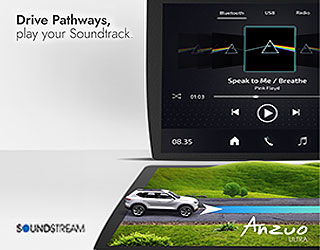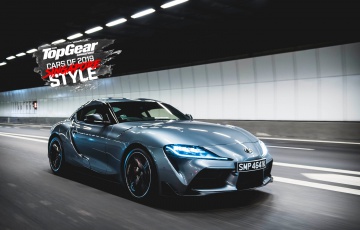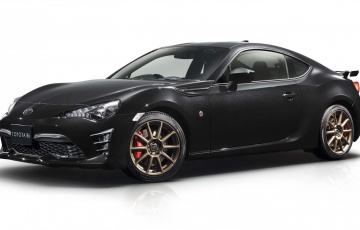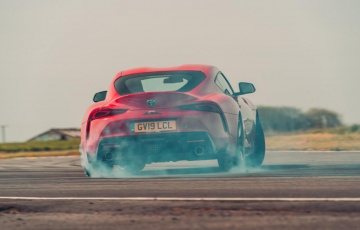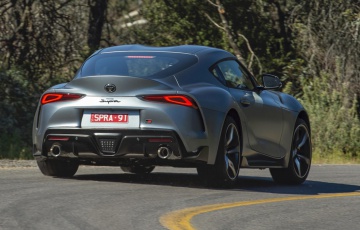Brand's Essence : 2021 Lexus LC500 Convertible & 1966 Toyota Sports 800 'Yota Hachi'
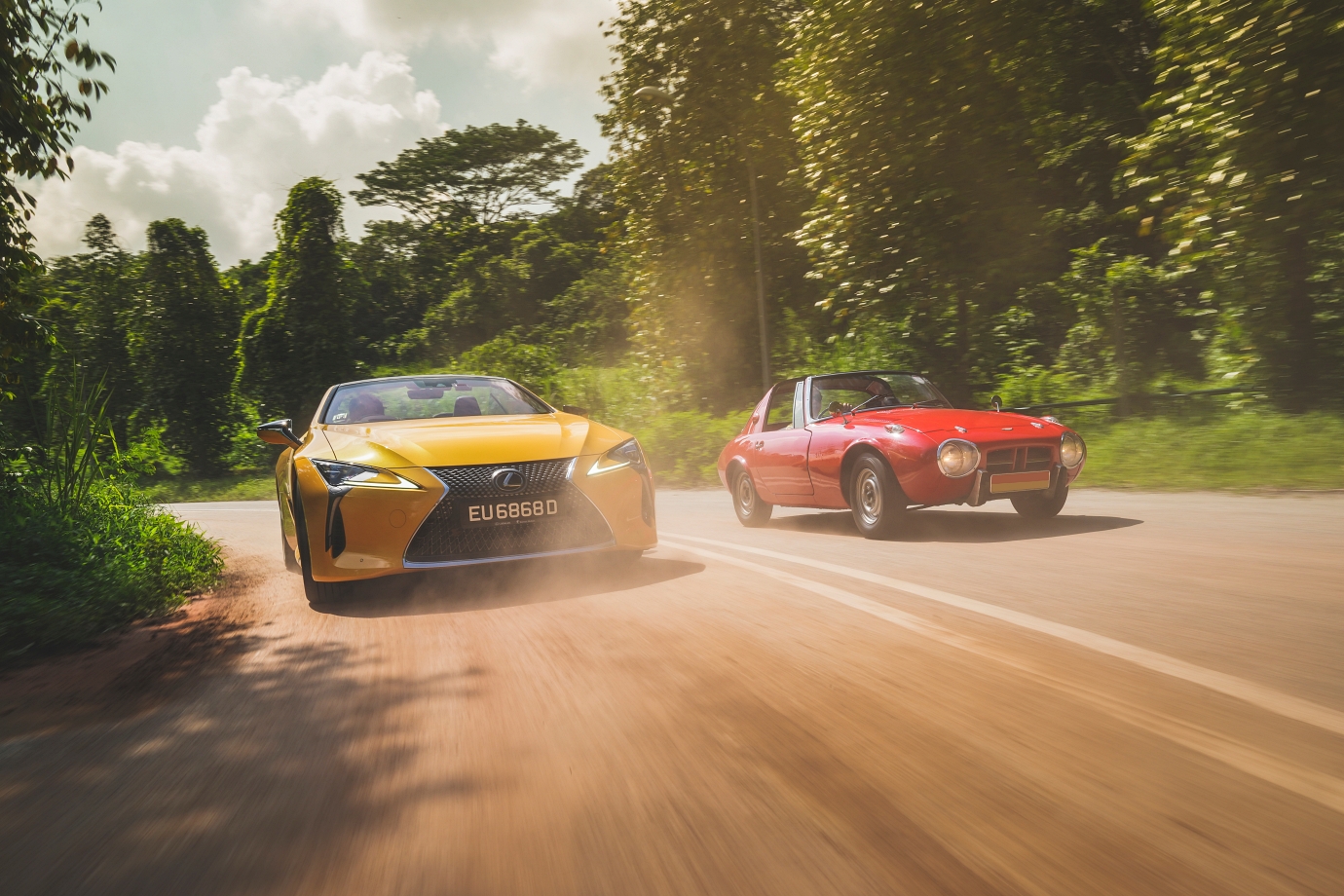
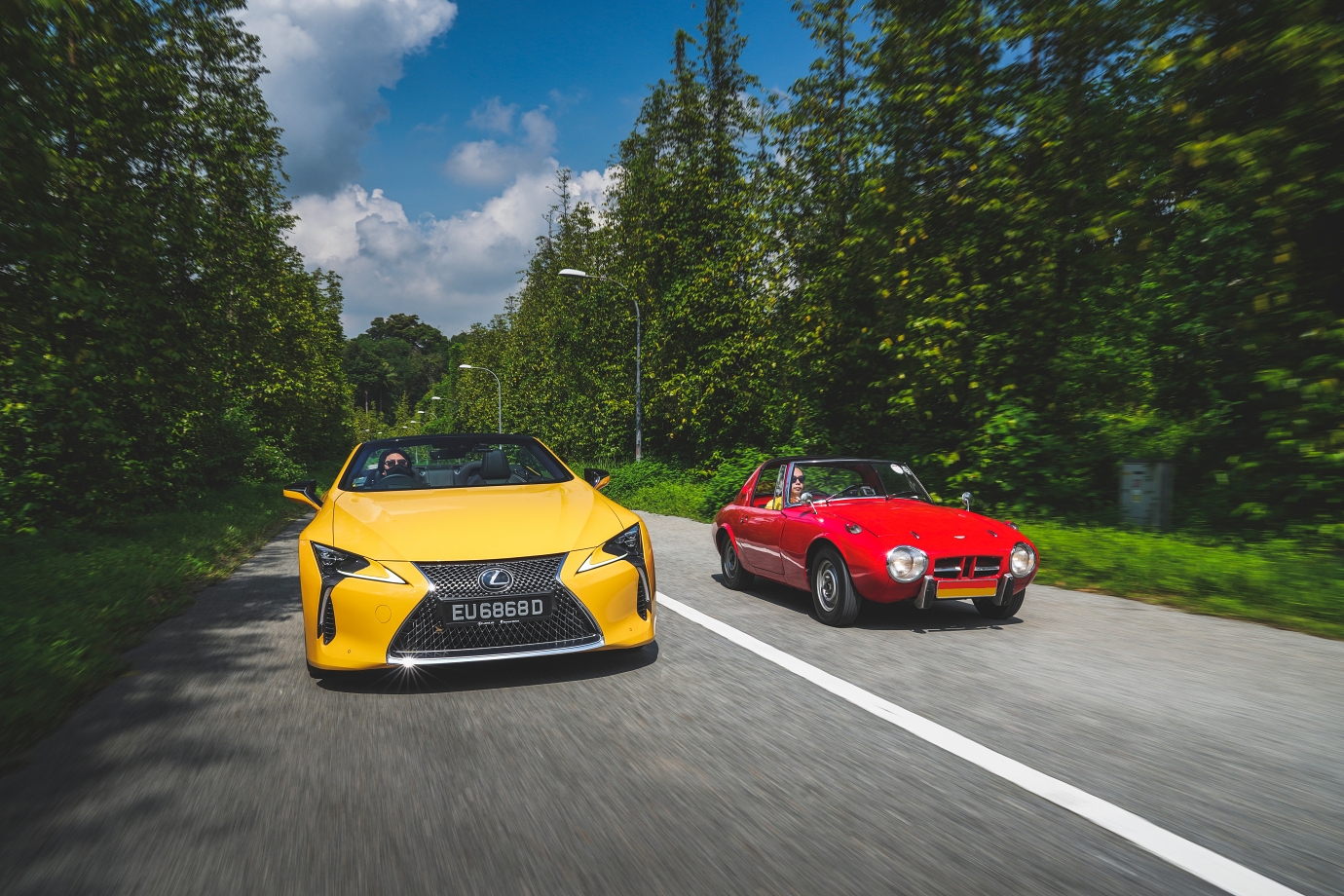
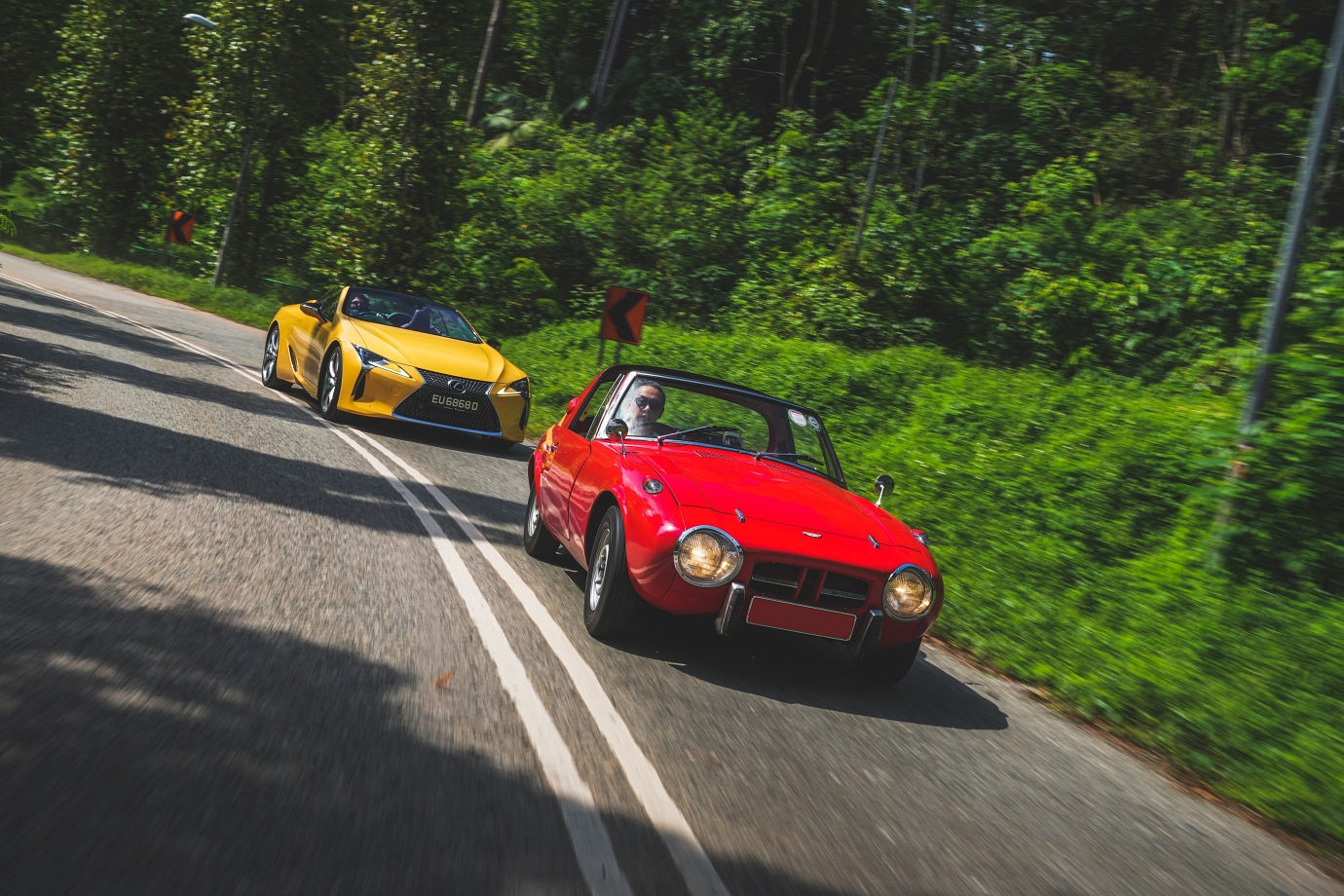
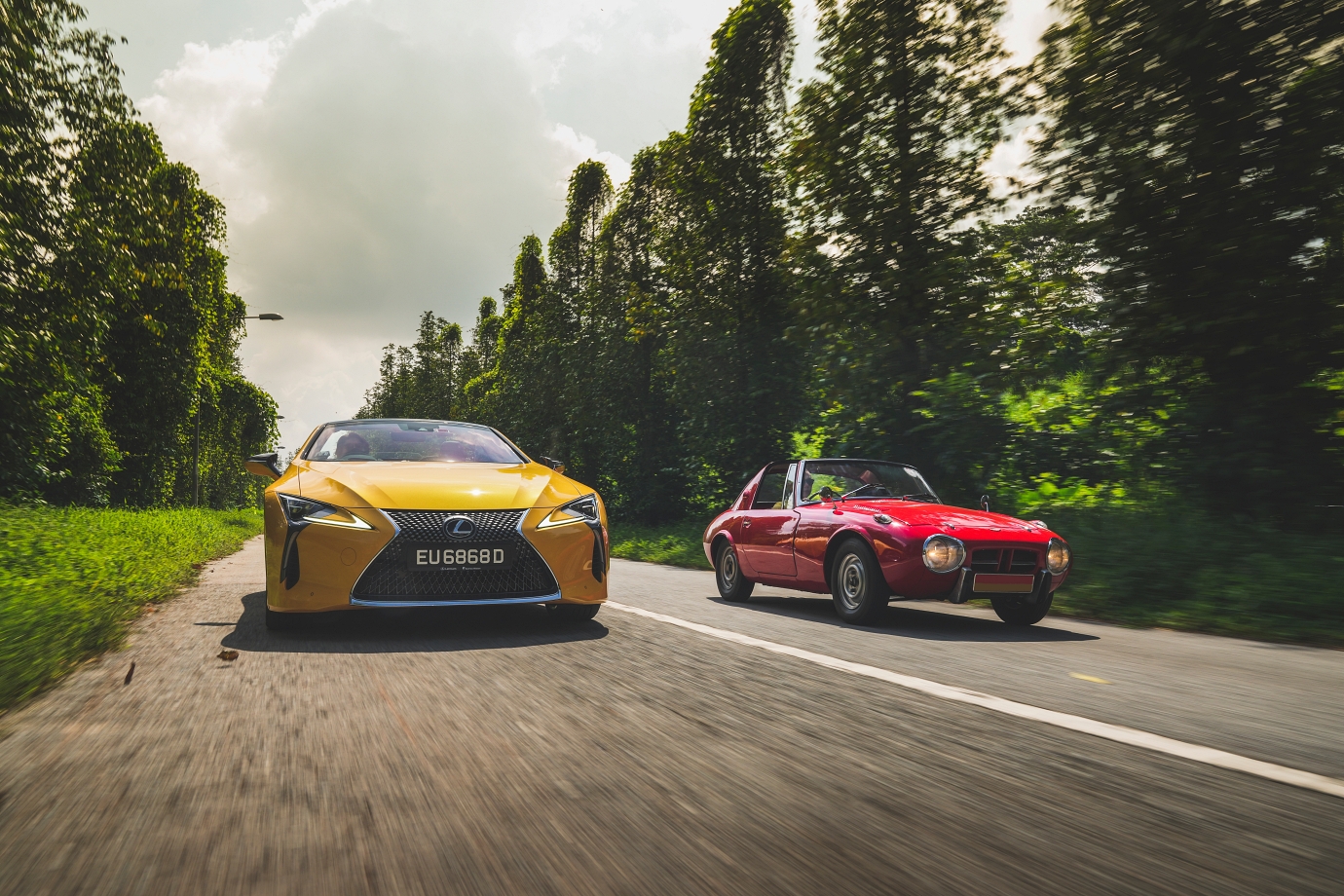
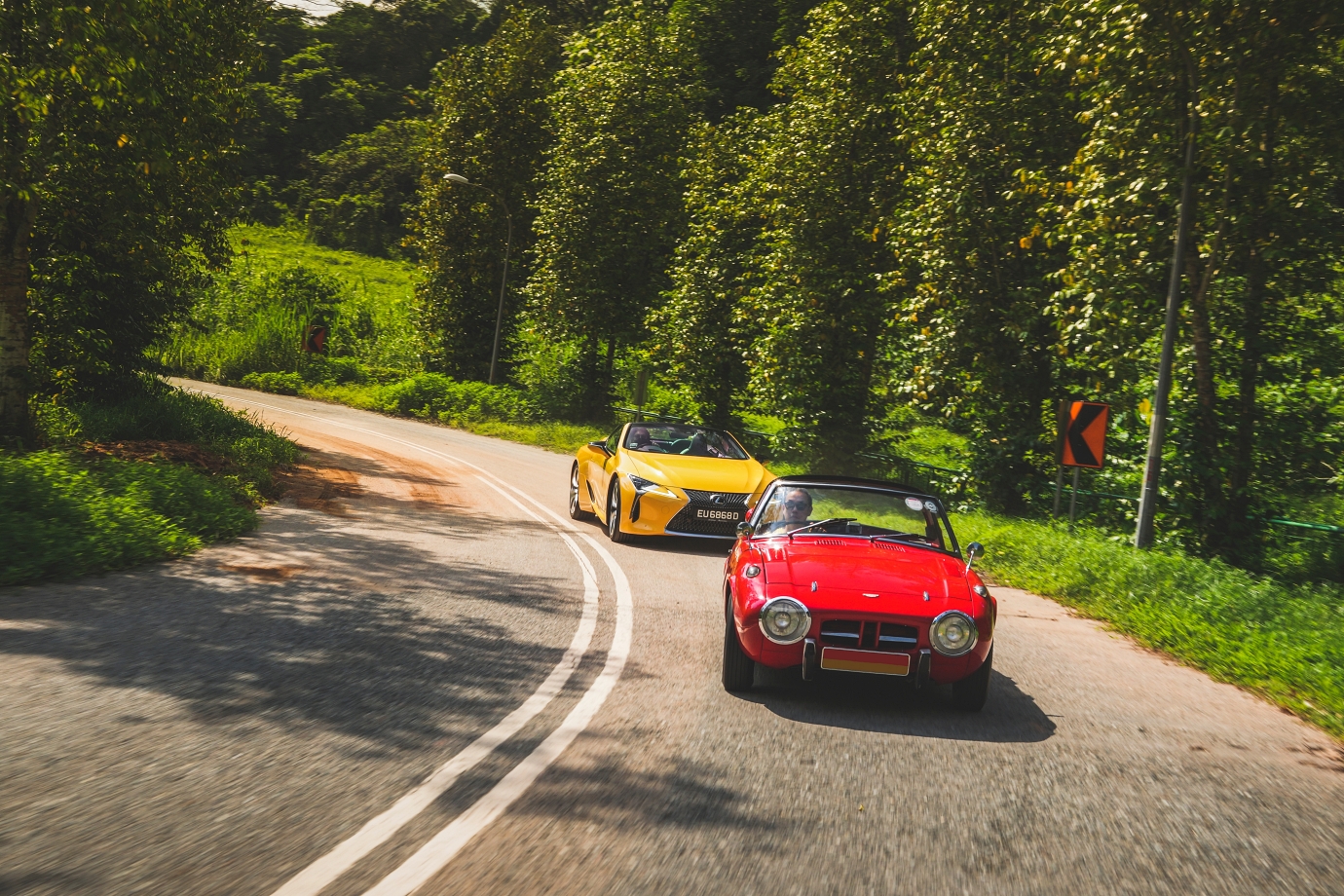
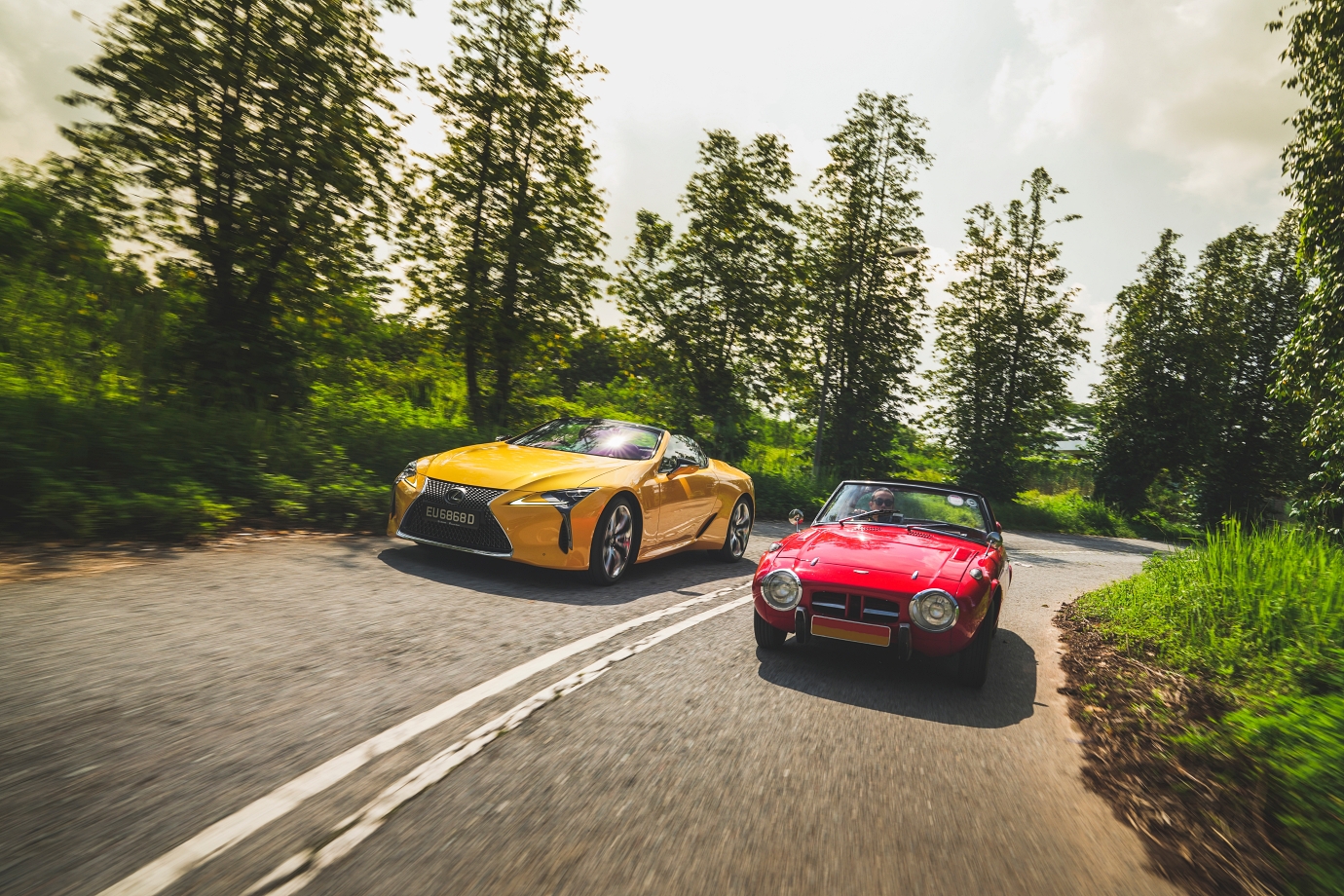
Lexus LC500 Convertible 2021 & 1966 Toyota Sports 800 'Yota Hachi' : Brand's Essence
Singapore - It's almost three years to the month that I first clapped eyes (and ears!) on the diminutive, little-known Toyota Sports 800 in a tiny corner of a friend's workshop as its flat-two engine roused rudely and raucously to life.
It may not be as ubiquitous as the Honda S500/600/800, but the 'Yota-Hachi' ('Yota' for Toyota, 'Hachi' for 8) is no less significant in petrolhead lore, and is a cult car appreciated by those 'in-the-know'.
Why? This is Toyota's first production sportscar, which recently celebrated its 55th Anniversary in 2020 – its 1965 market introduction pre-dates even the legendary 2000GT's of 1967 (check out the Sports 800's headlights... look familiar?).
So yes, this is the great-great-great grand pappy of every Toyota/Lexus sportscar. Sadly, with a rumoured 10 per cent (or less) left of the 3131 total units between 1965-1969, parts and resources are increasingly impossible to find today, so we were especially careful during our day out in the little 8.
With star-studded luminaries like the LFA (Click HERE for our LFA drive), RCF/ISF/GSF (Click HERE for our GSF Drive), Supra (Click HERE for our A90 Supra First Drive), Celica, MR2, 86, and now the GR Yaris and LC500 (Click HERE for our LC500 Coupe First Drive) under Toyota and Lexus, it's surprising that folks can't look beyond the hybrid models or econoboxes (the Sports 800 itself was derived from the humble Publica sedan).
(What happens when a GS F owner meets the LC 500 Convertible? Click HERE to read about the showdown!)
Mind you, this isn't something that afflicts just the average man-in-street as you'd expect, but even self-proclaimed petrolheads.
Ultimately, the brand has unreservedly paid its dues and earned the respect it should rightfully be accorded as far as serious sporting machines are concerned.
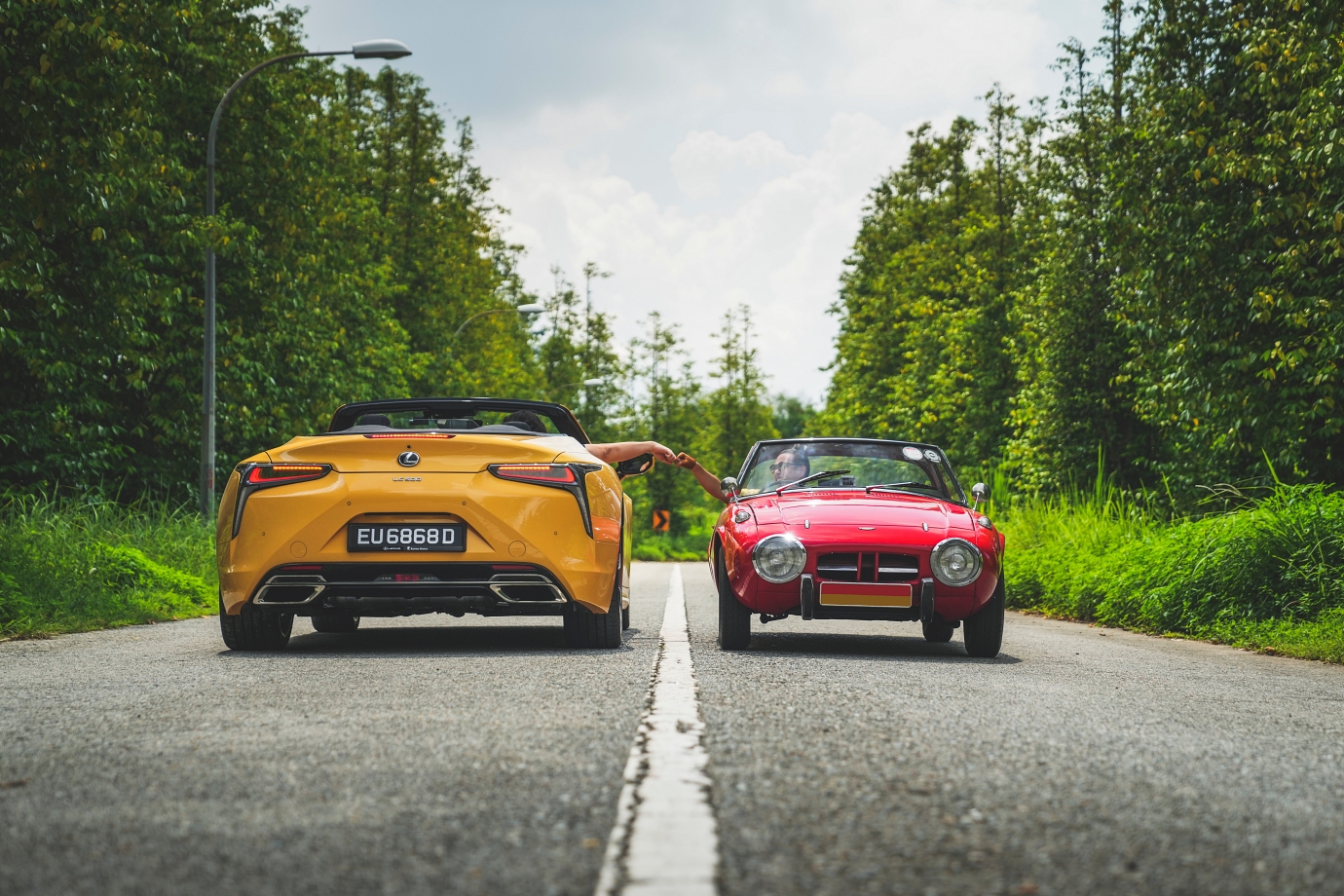
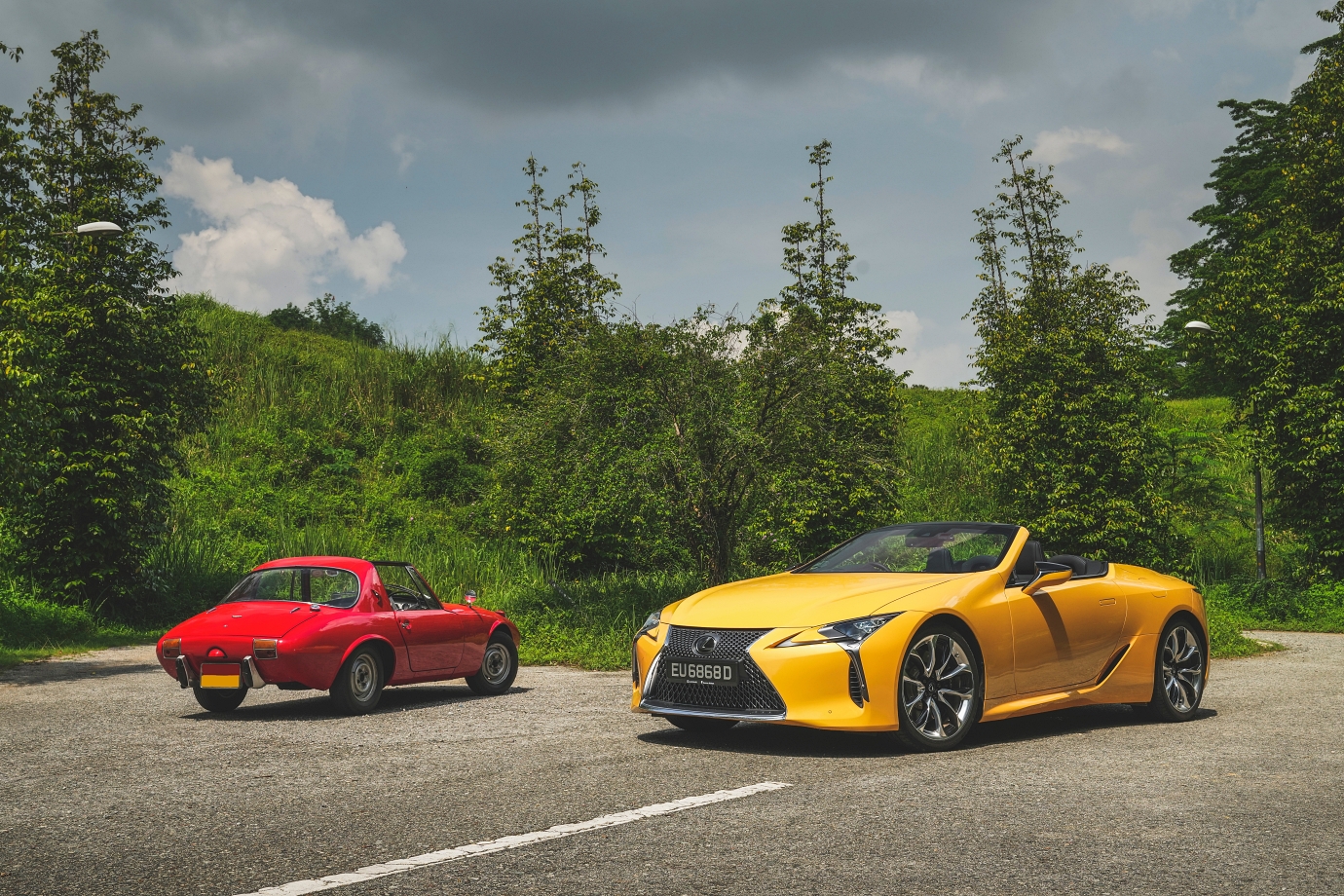
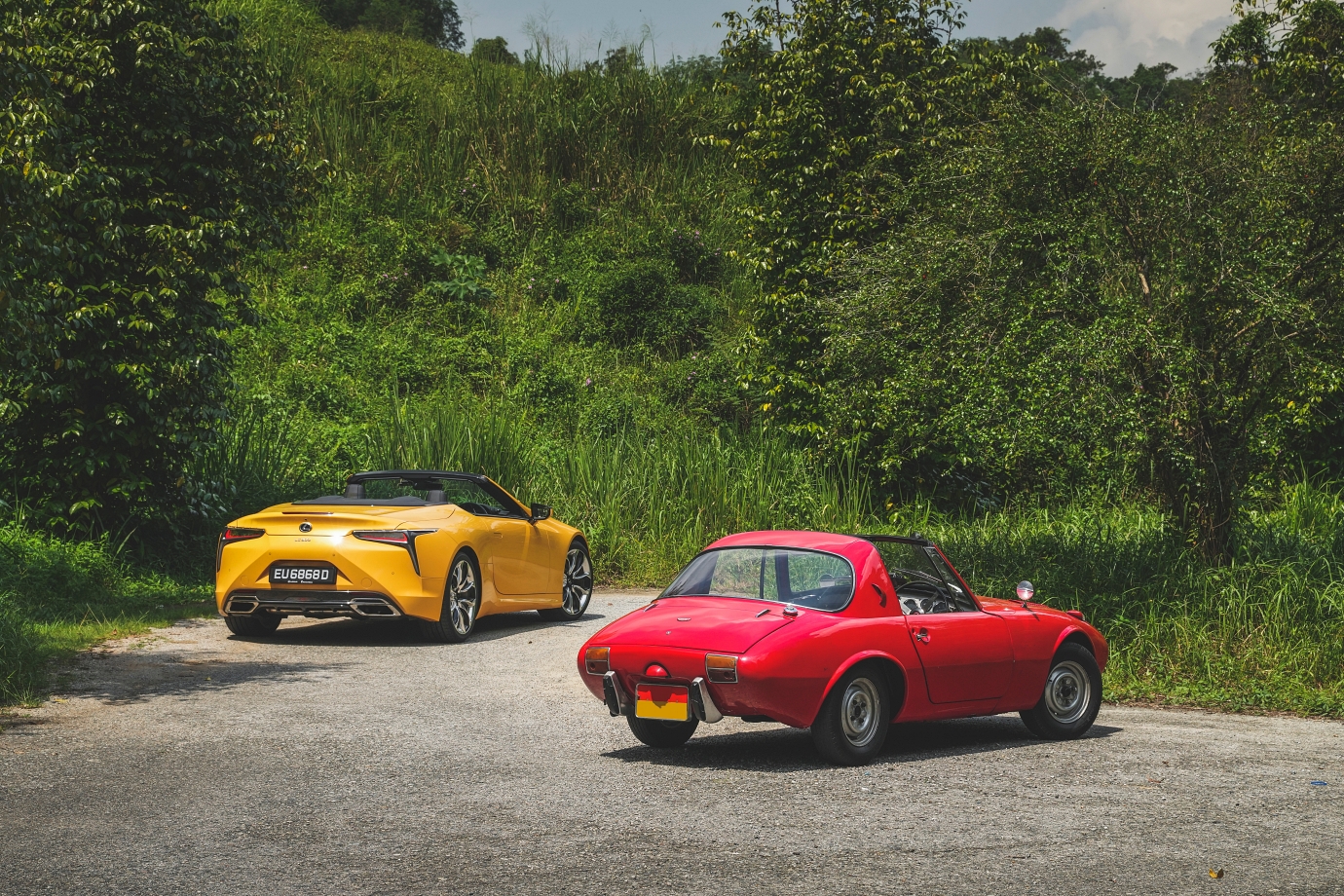
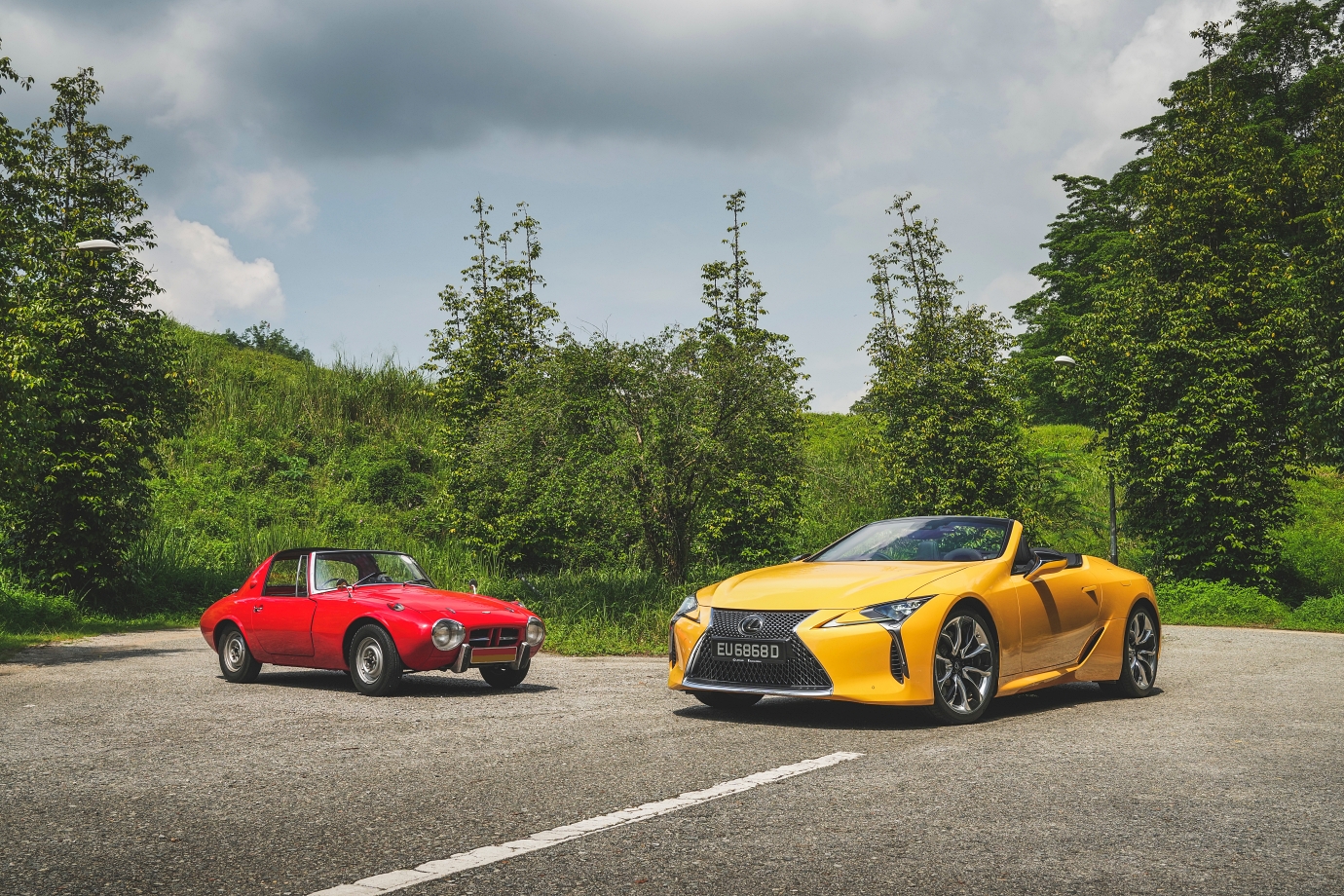
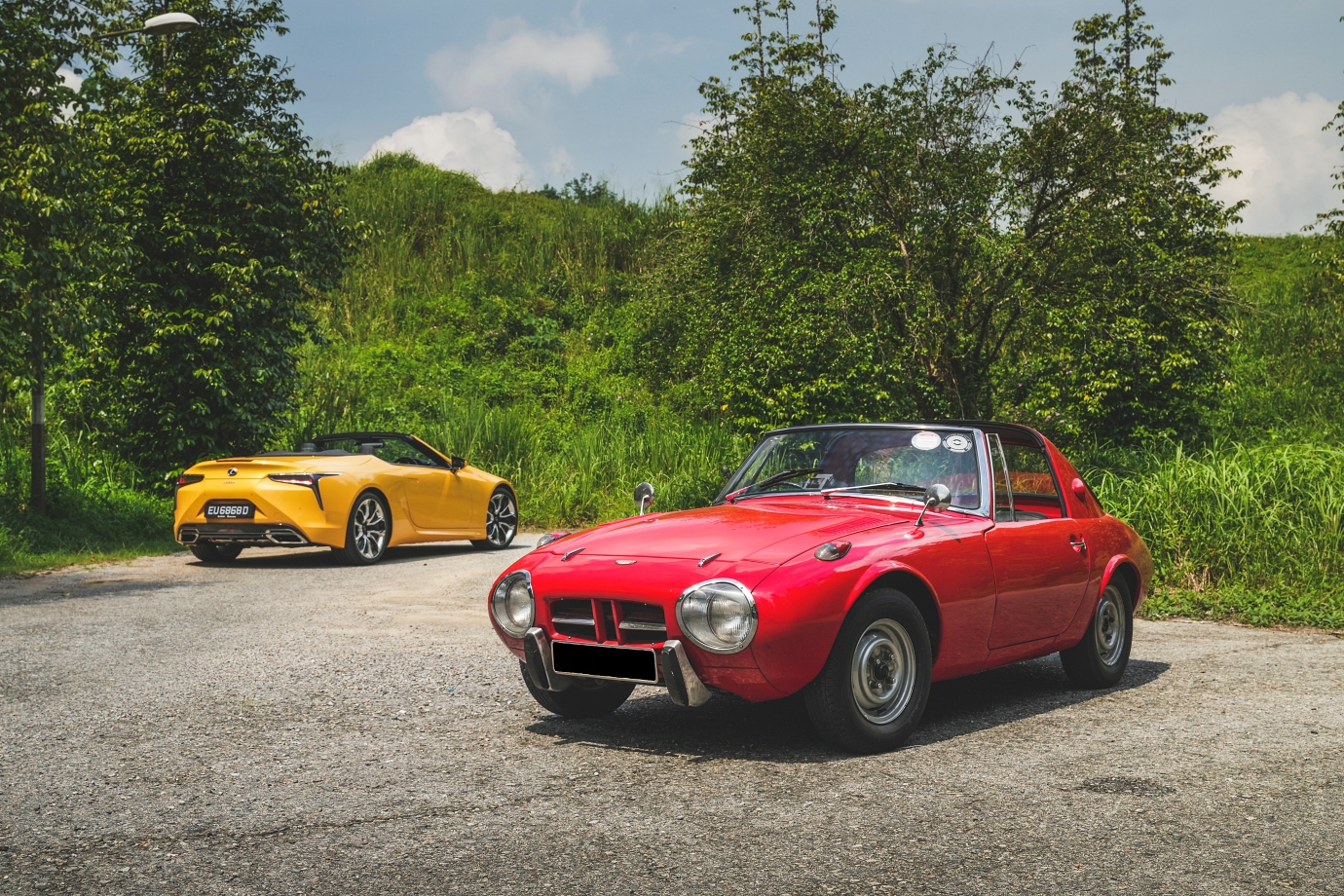
TL;DR: Don't diss their 'sensible' offerings, because there's been a sportscar in the brand's DNA from as early as 1965 right up to today, which provides compelling provenance for any performance car from both Toyota and Lexus.
Moreover, with a certifiable petrolhead racer at the head of the company in the form of the irrepressible Akio Toyoda, you'll know that any sportscar produced by either brand will be by a petrolhead for petrolheads.
We try not to chase trending 'hype' cars – that's like shooting fish in a barrel. Rather, the challenge of digging deeper into cult cars like the Yota Hachi that aren't the flavour of the moment is far more satisfying.
Moreover, if you're reading a lot about something that's spilling onto many platforms, you've already missed the boat.
We found it fitting to have Toyota's first production open-top sportscar keep company with the brand's latest, the Lexus LC 500 Convertible.
Both aren't just defiantly naturally-aspirated in gloriously vocal fashion, but also offer an engaging drive and an indulgent wind-in-hair motoring experience.
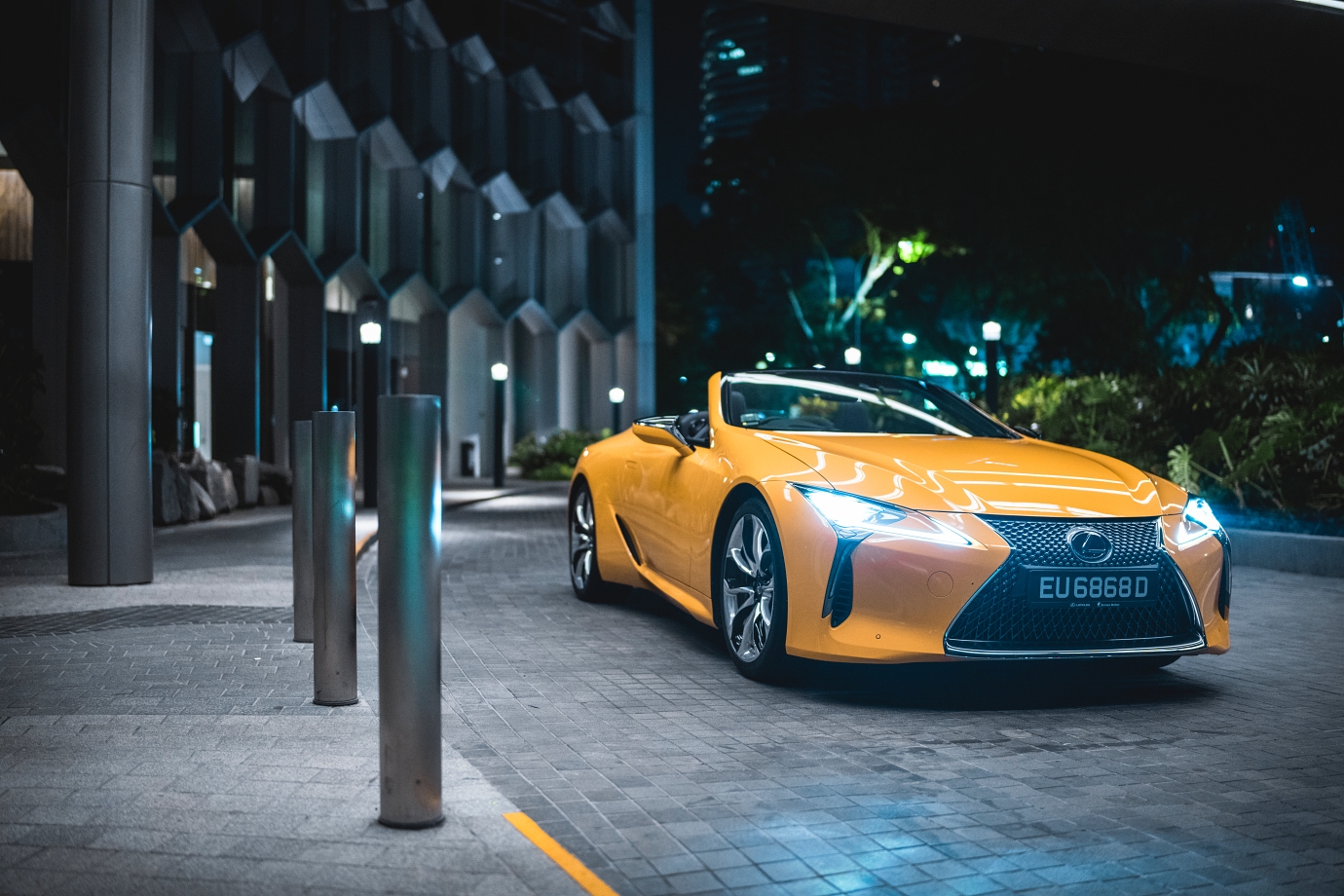
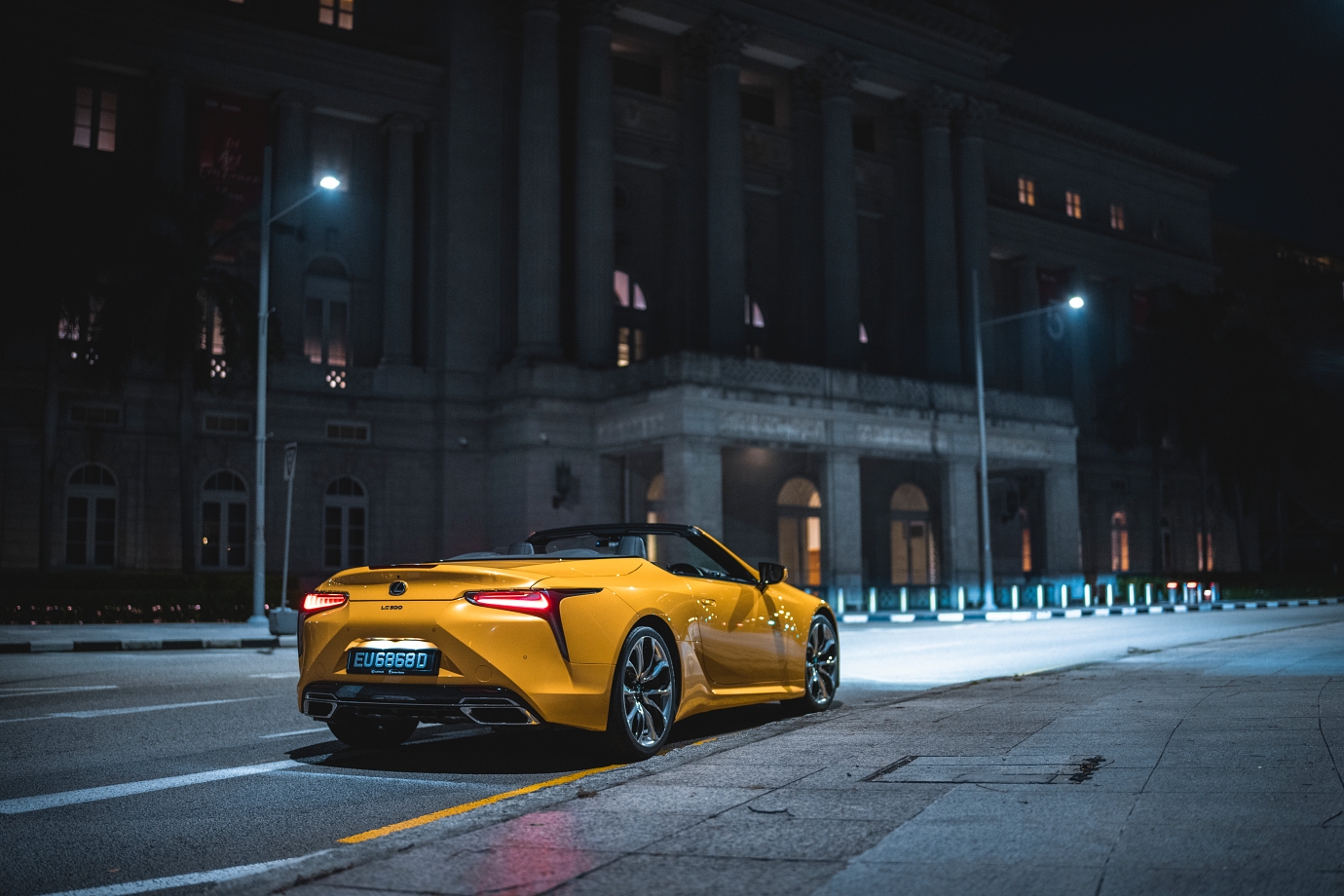
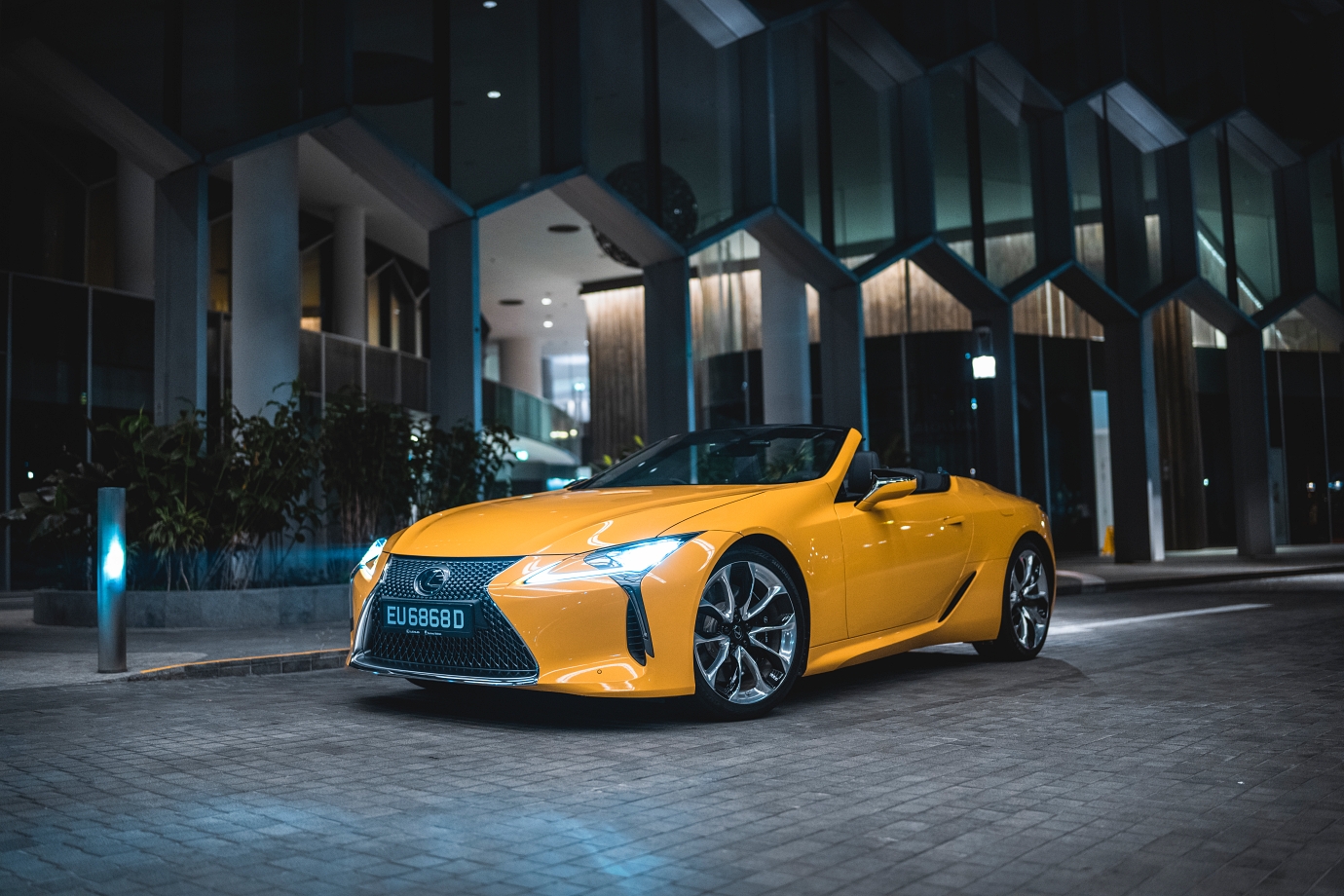
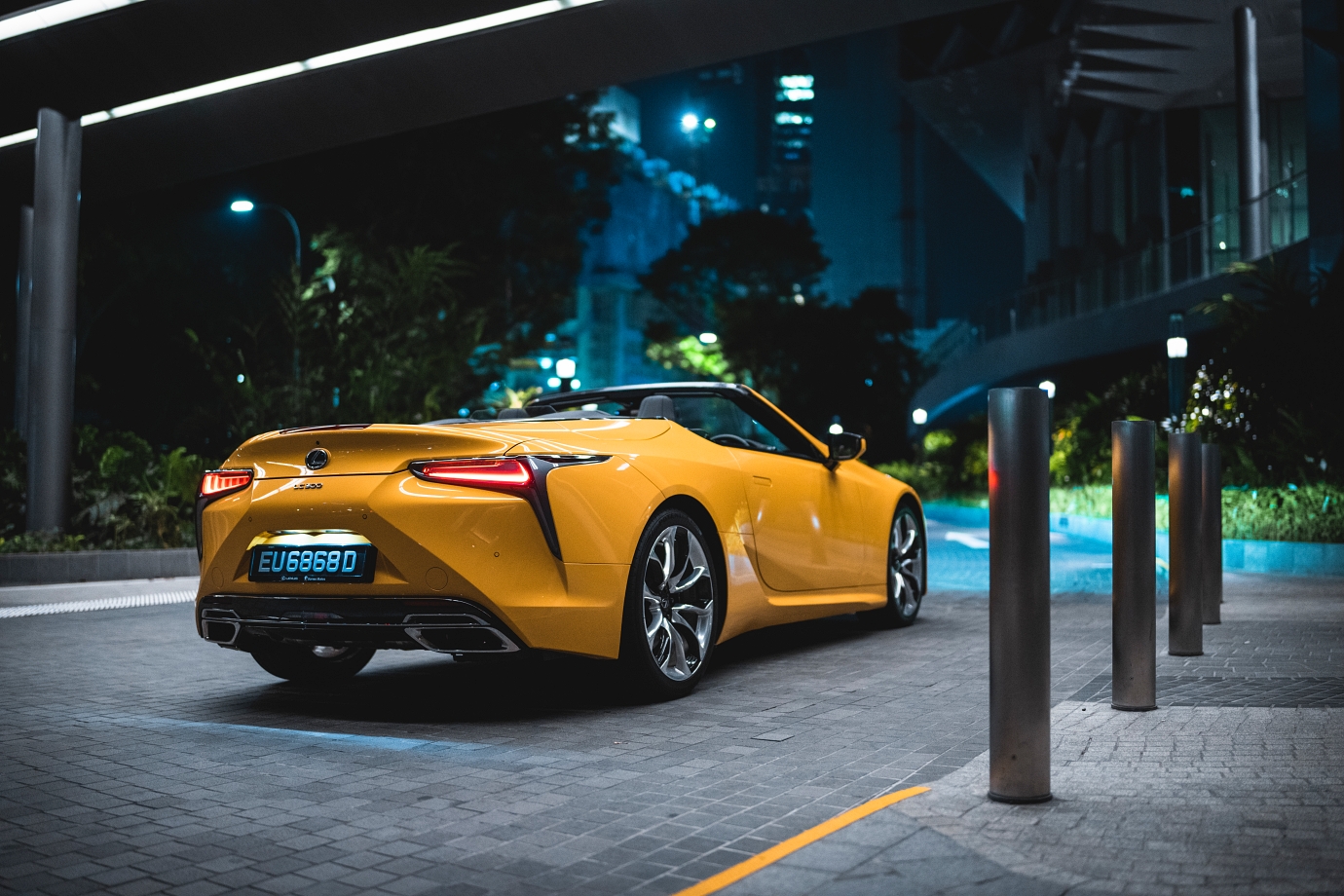
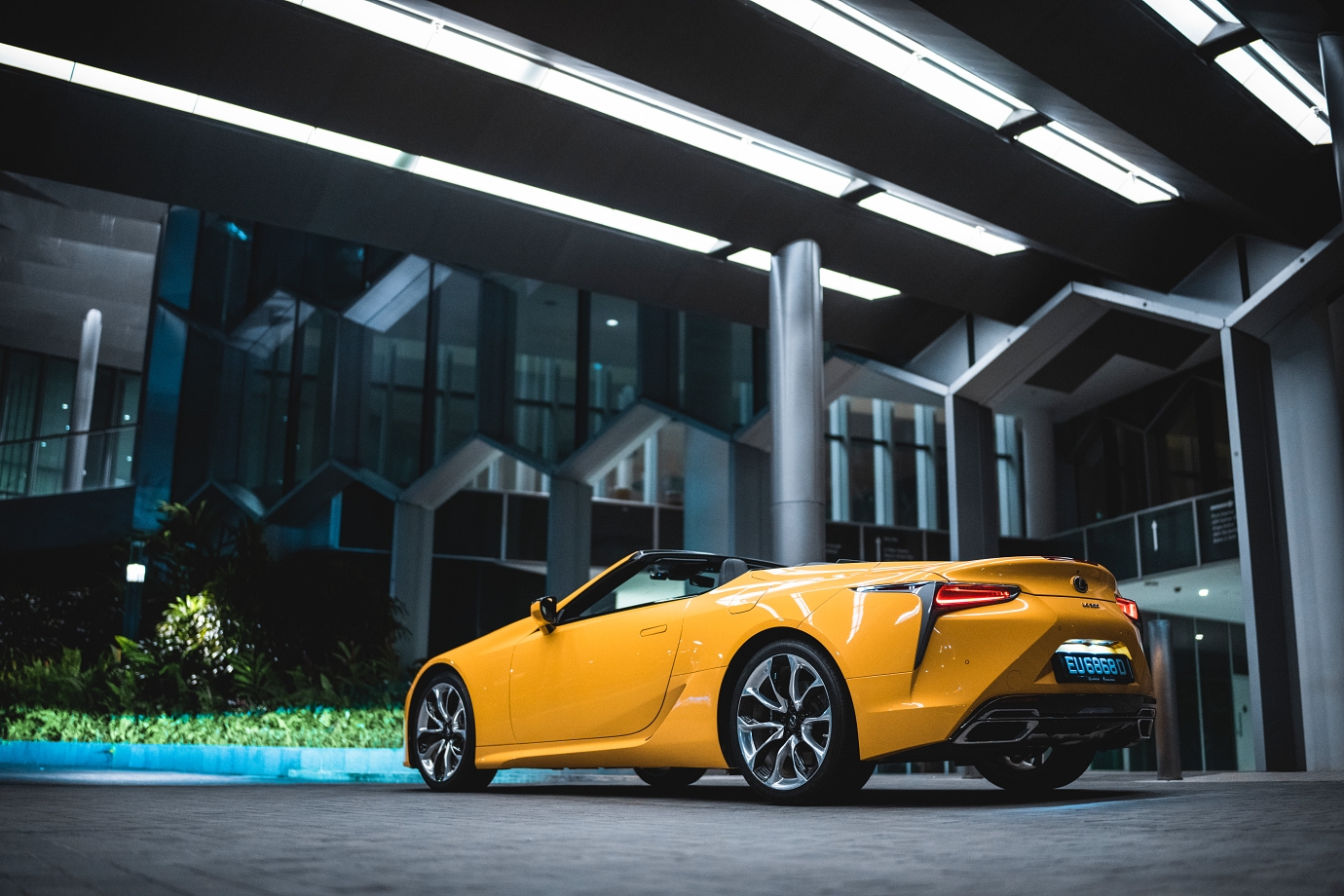
LEXUS LC 500 CONVERTIBLE
It isn't difficult to spot the Naples Yellow LC 500 Convertible in the busy carpark, although getting lost in the crowd isn't something that comes naturally to the pint-sized Sports 800 either, especially with its distinctive fighter-plane-inspired 'Targa' canopy.
Colour aside, the LC has an immense predatory presence regardless of whether the soft-top is up or down, while its 4760 x 1920 x 1350mm (LxBxH) proportions mean the two-plus-tonne Lexus can never be the quiet kid at the back of the classroom.
Lexus has done more than merely lop-off the LC Coupe's top, and there's a sweet balance to its sleek proportions and smart 21-inch forged alloys, which complement its aggressive visage and jaunty derrière.
As we would also discover during the drive, the LC 500 Convertible is far more than just a pretty face, because the monstrous nat-asp V8 at its heart will give as good as it gets.
The pair appears to be a study in contrast, with the pint-sized Sports 800 weighing-in at under 600kg and measuring just 3580 x 1465 x 1176mm (LxBxH). However, trust us when we say they share a lot more similarities in sportscar spirit even in spite of the glaring physical differences.
Naturally, there's a trick Mark Levinson hi-fi that is now synonymous with Lexus, but with the top-down, why would you need any other music apart from the strident call and symphonic wall-of-sound orchestrated by the naturally-aspirated V8?
A big engine with big sound has the depth in tonal character (especially at the upper reaches of the rev-band) that can't easily be replicated by a small modern turbocharged engine 'that thinks it can'.
Soundtrack – and not just speed – is an evocative element of any sportscar and the two cars deliver charismatic, soulful renditions inspired by the salacious symphony of speed.
People think of Lexus as being strait-laced, but we beg to differ: notwithstanding the V10-engined LFA magnum opus, the full-fat F series models and now the LC 500 cars fly the nat-asp V8 standard proudly in rebel-rebel fashion... and us car nerds are all the richer for it!
The mighty 5.0-litre V8 woofles ominously to life, but it is more watchful Doberman than yappy small dog.
In fact, this is all the more menacing because it is no empty vessel making a lot of white noise with 'fake' snaps, crackles and pops.
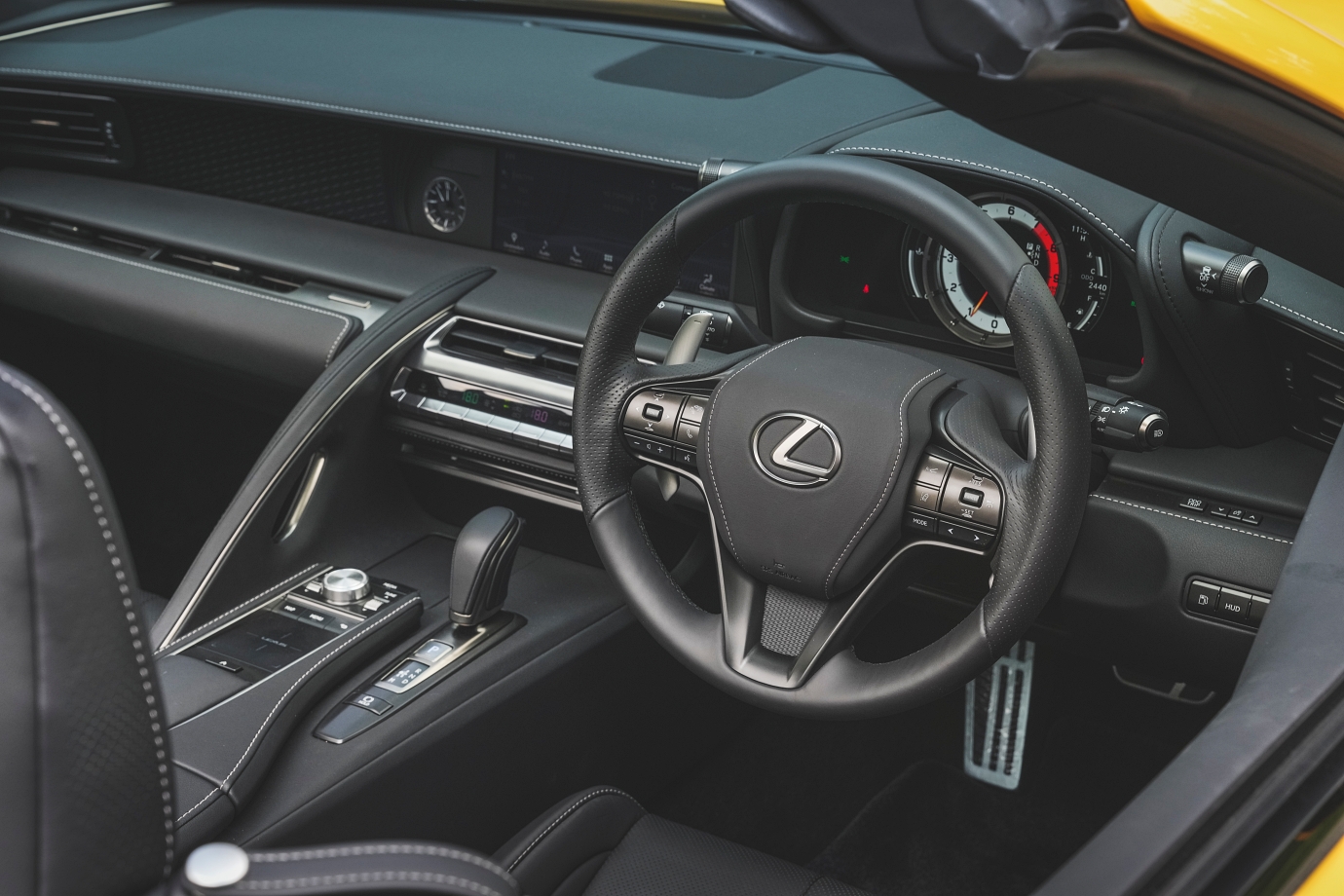
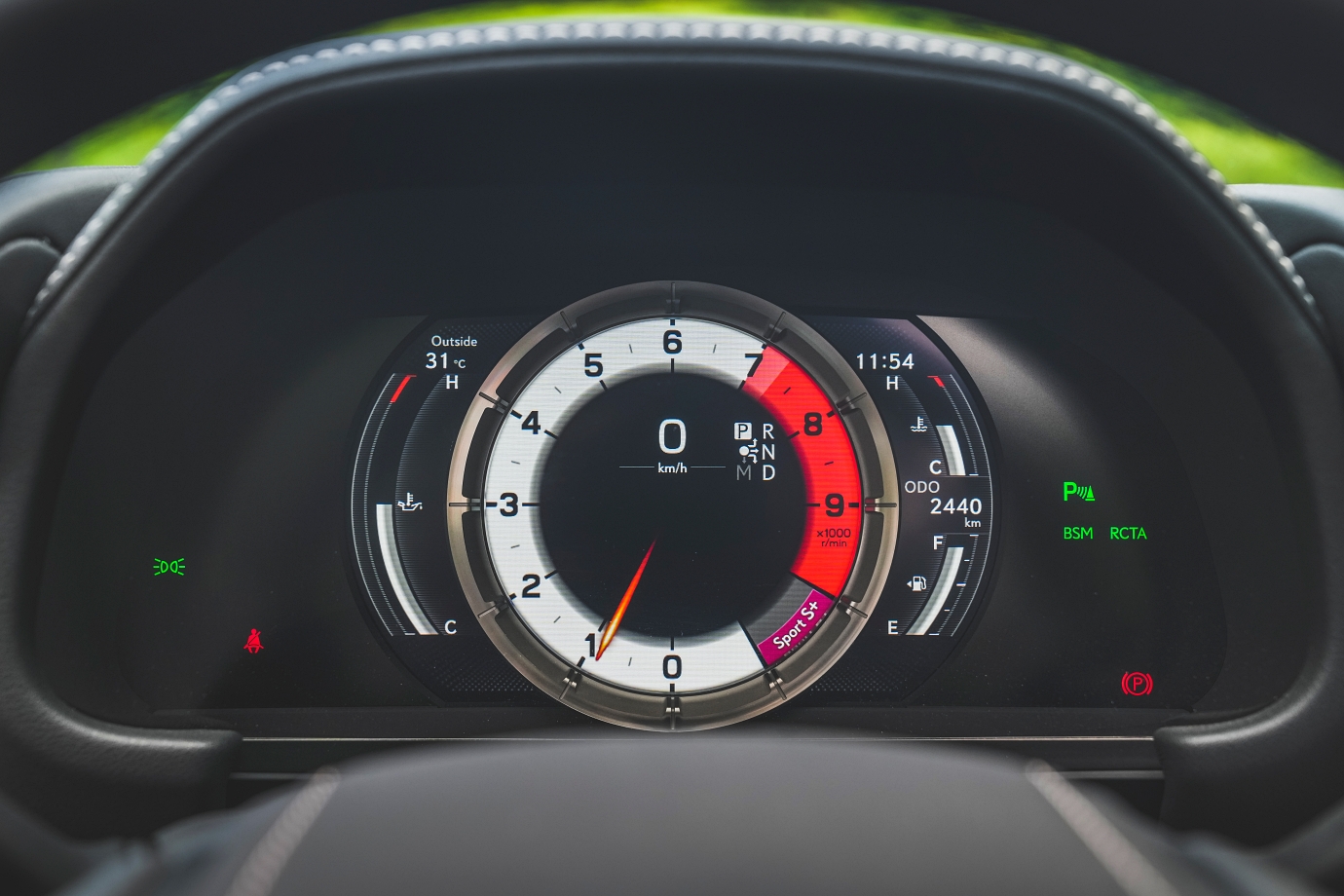
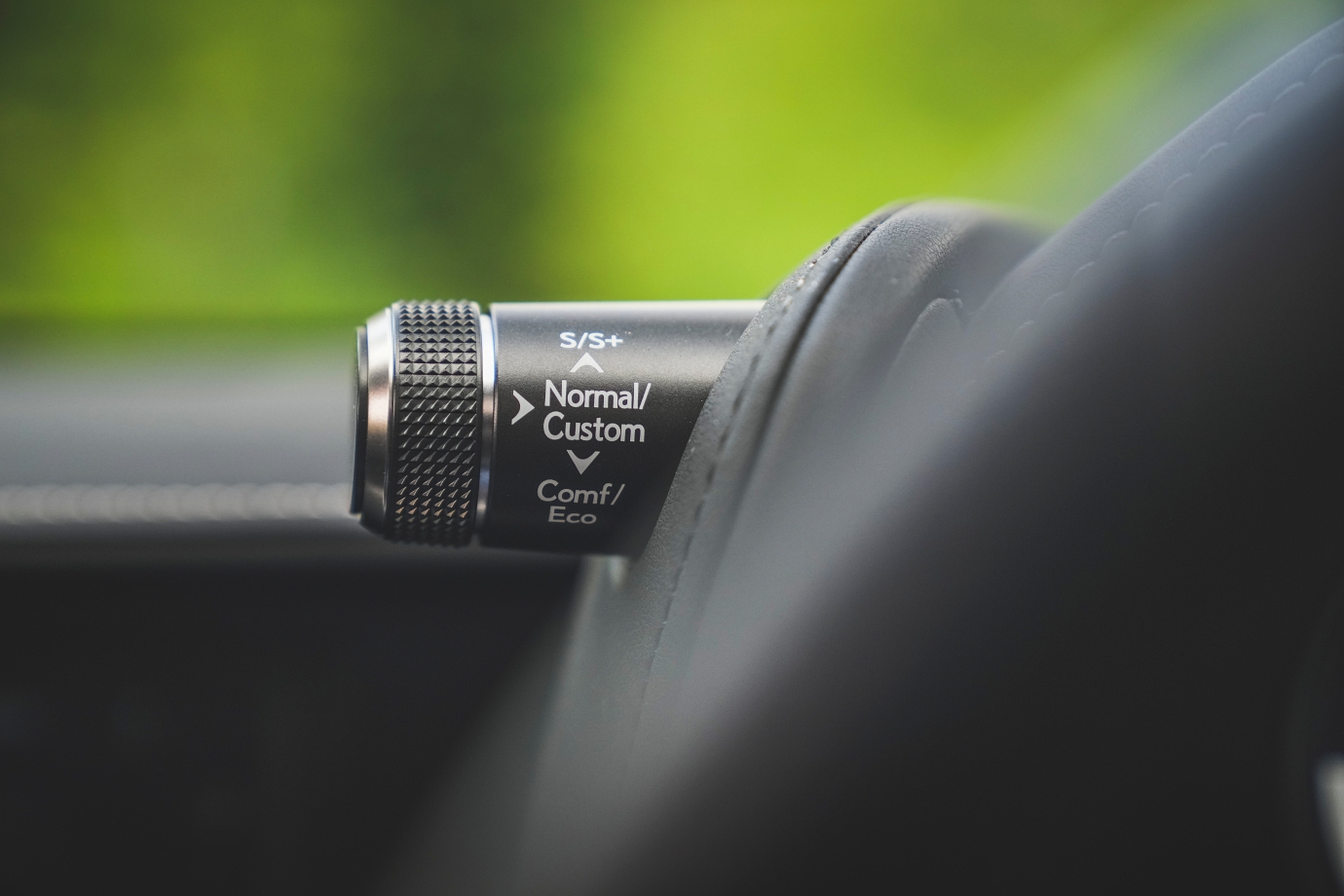
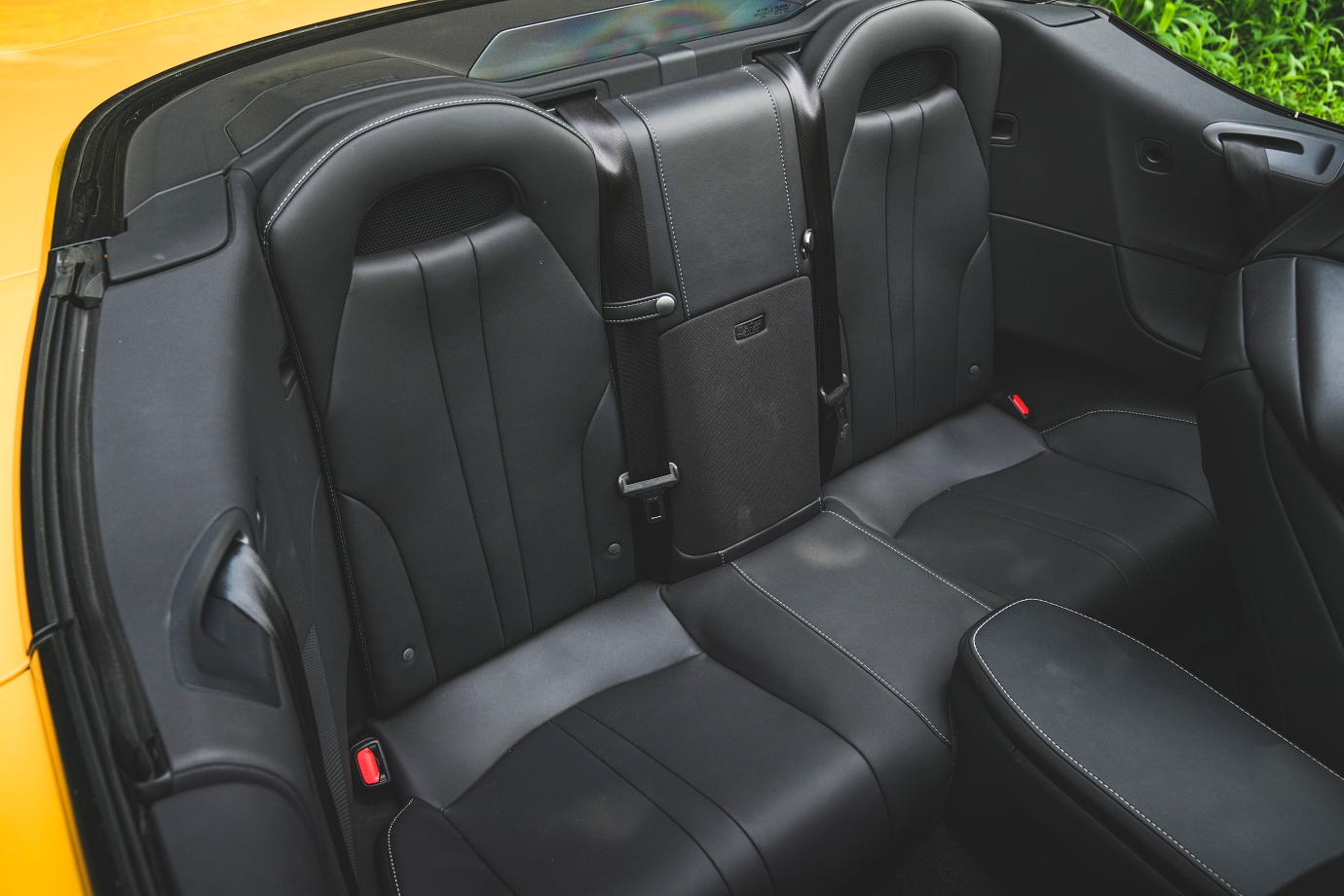
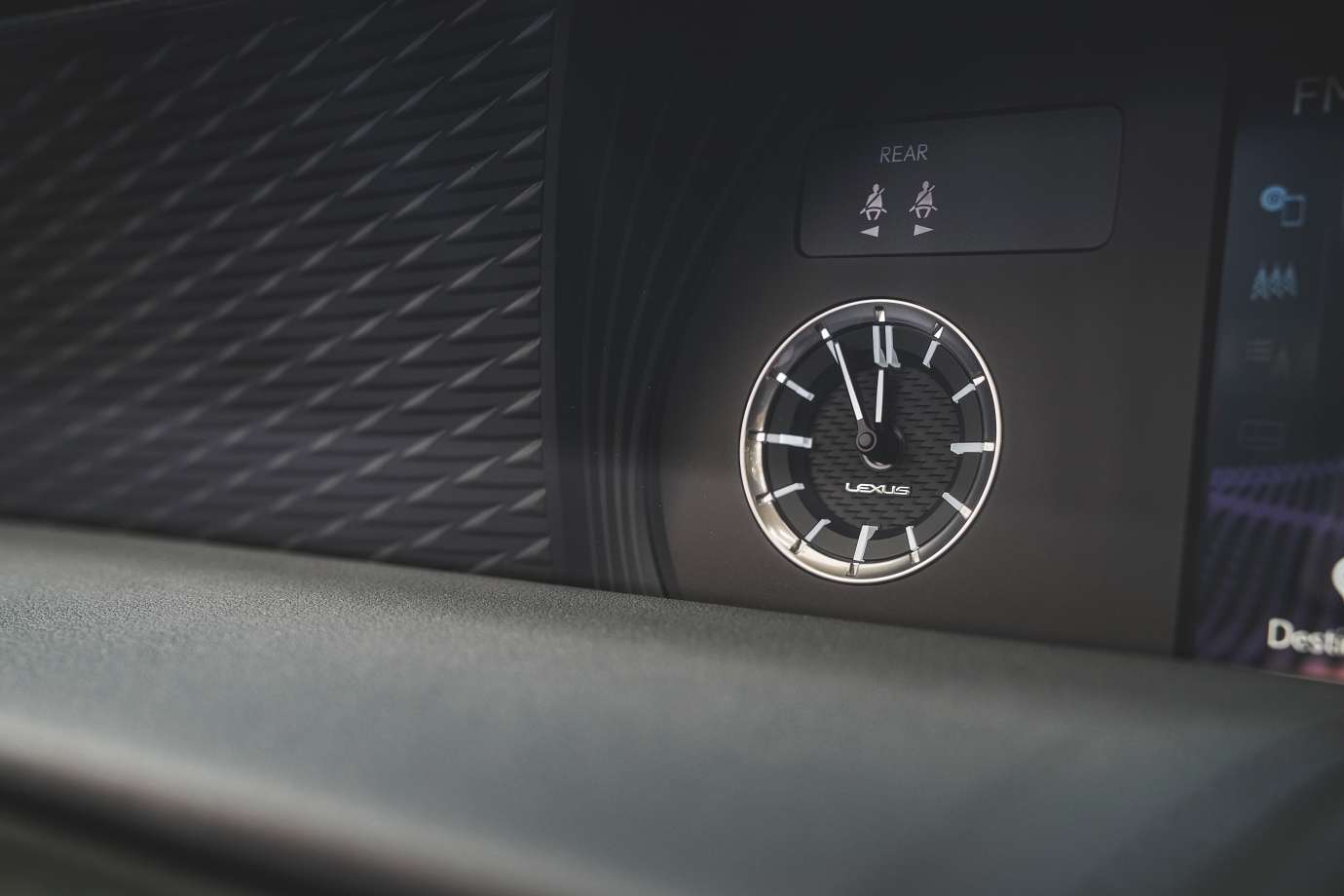
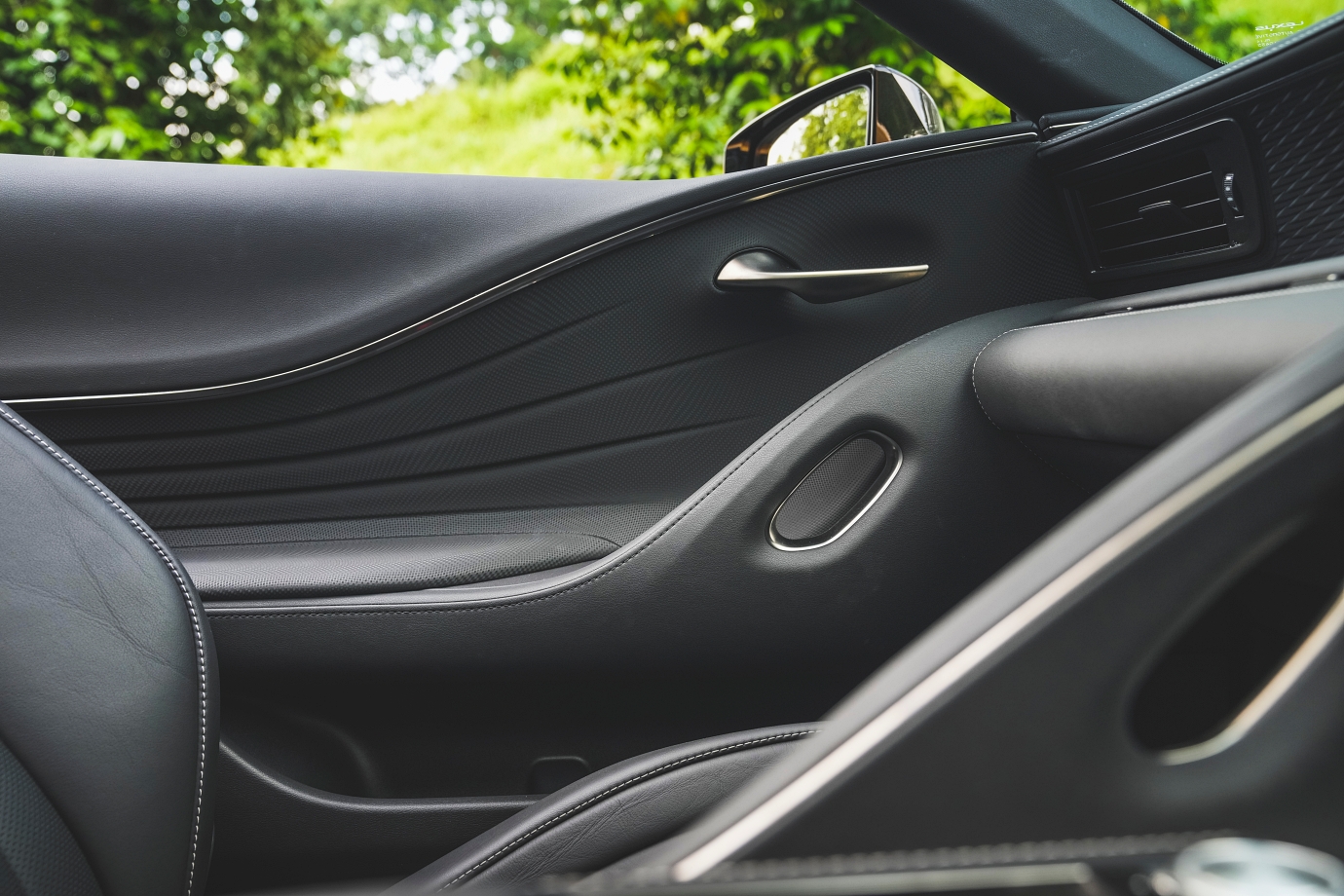
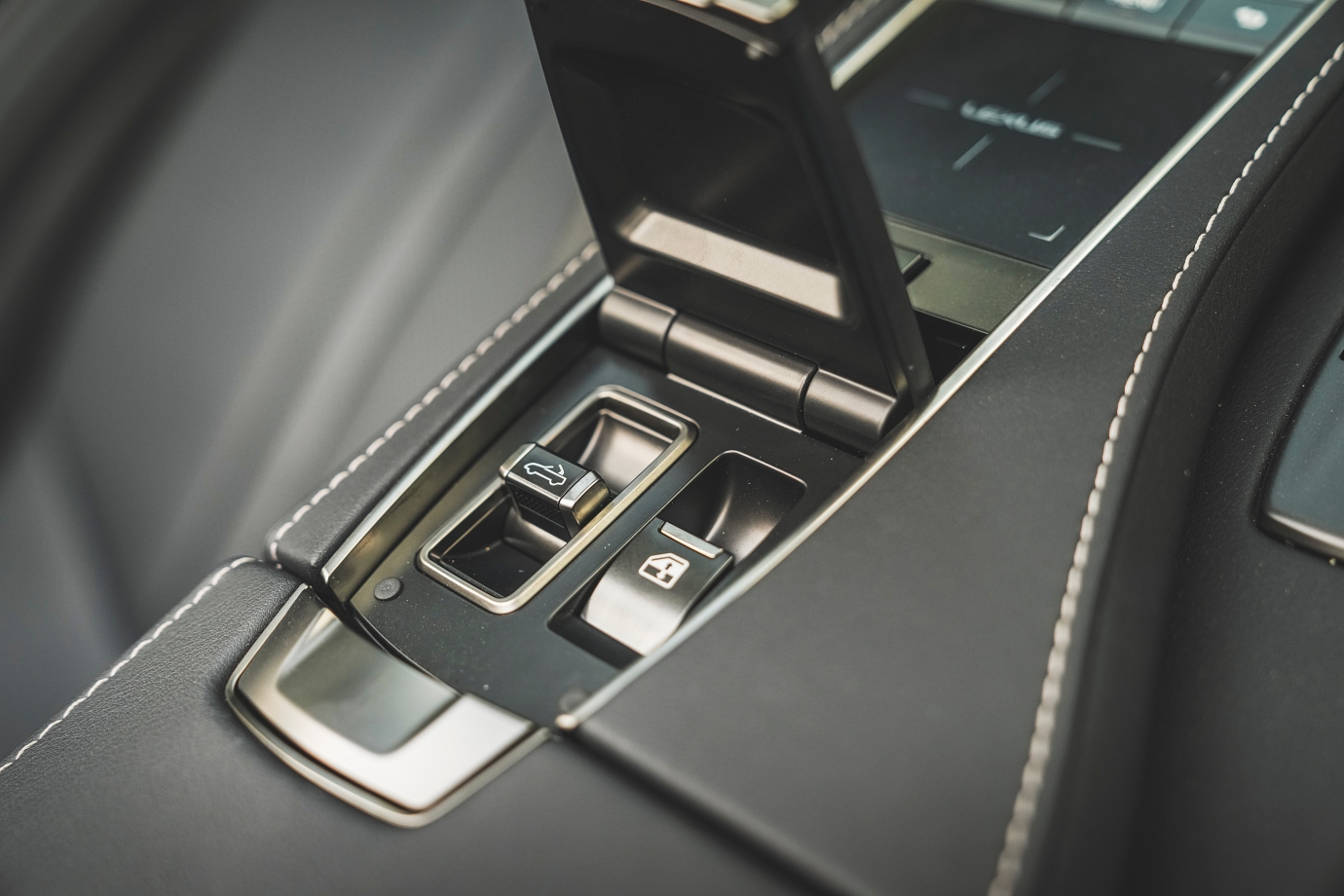
The cabin shares the same ergonomics and LFA-inspired eight-inch Sliding Digital Meter as the LC Coupe, and is familiar enough territory save for the additional roof controls, which sit discreetly under a cover in the centre console.
The roof will raise/drop in 15/16secs with the LC travelling at speeds of up to 50km/h, which meant we were able to protect the Lexus's lux leather interior when we encountered a spot of rain during the drive.
Unlike the BMW, Mercedes-Benz and Audi in-car operating systems, the LC's interface isn't so much archaic as it is straightforward, so you won't have to seek solace in 'thick' online instruction manuals.
However, with the latest Model Year, it's moved with the times so you can now mirror your smartphone onto the car's 10.3-inch high-res display on the move.
Like its Coupe counterpart, the knobs for toggling between the Eco/Normal/Sport/Sport S+ drive modes and traction control are positioned on the left and right of the instrument cowl.
More critically, these take a cue from the LFA's set-up, still one of the best cars we've ever driven and one that helped cement Lexus as a force to be reckoned with in the league of extraordinary exotics.
On the fast and furious move, the LC Convertible is brisk but doesn't have the hard-edged focus of the LC 500 Coupe with Track Package.
Bear in mind the latter includes rear-wheel steer, LSD and carbonfibre roof, which make for a formidable package on circuit and winding road.
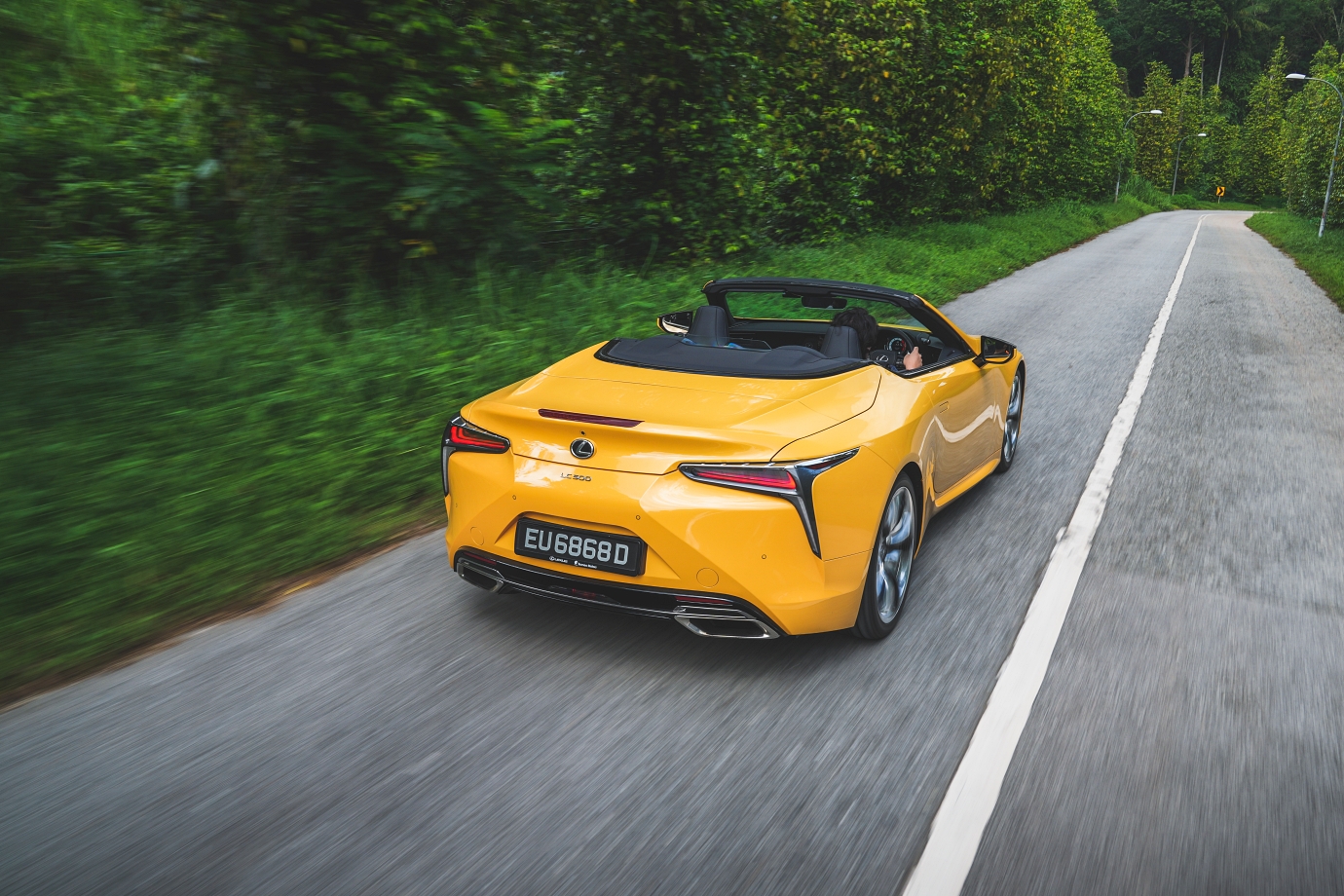
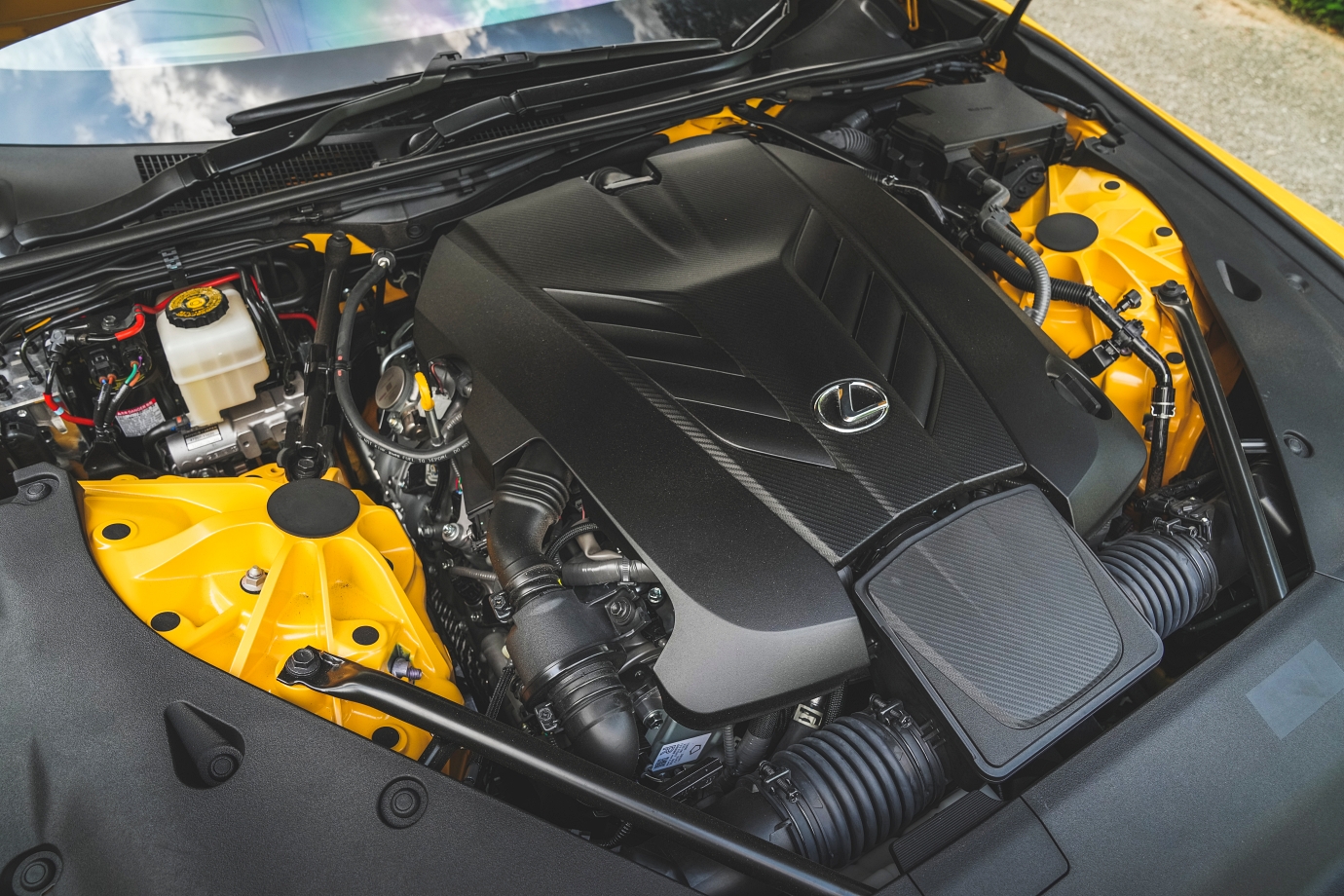
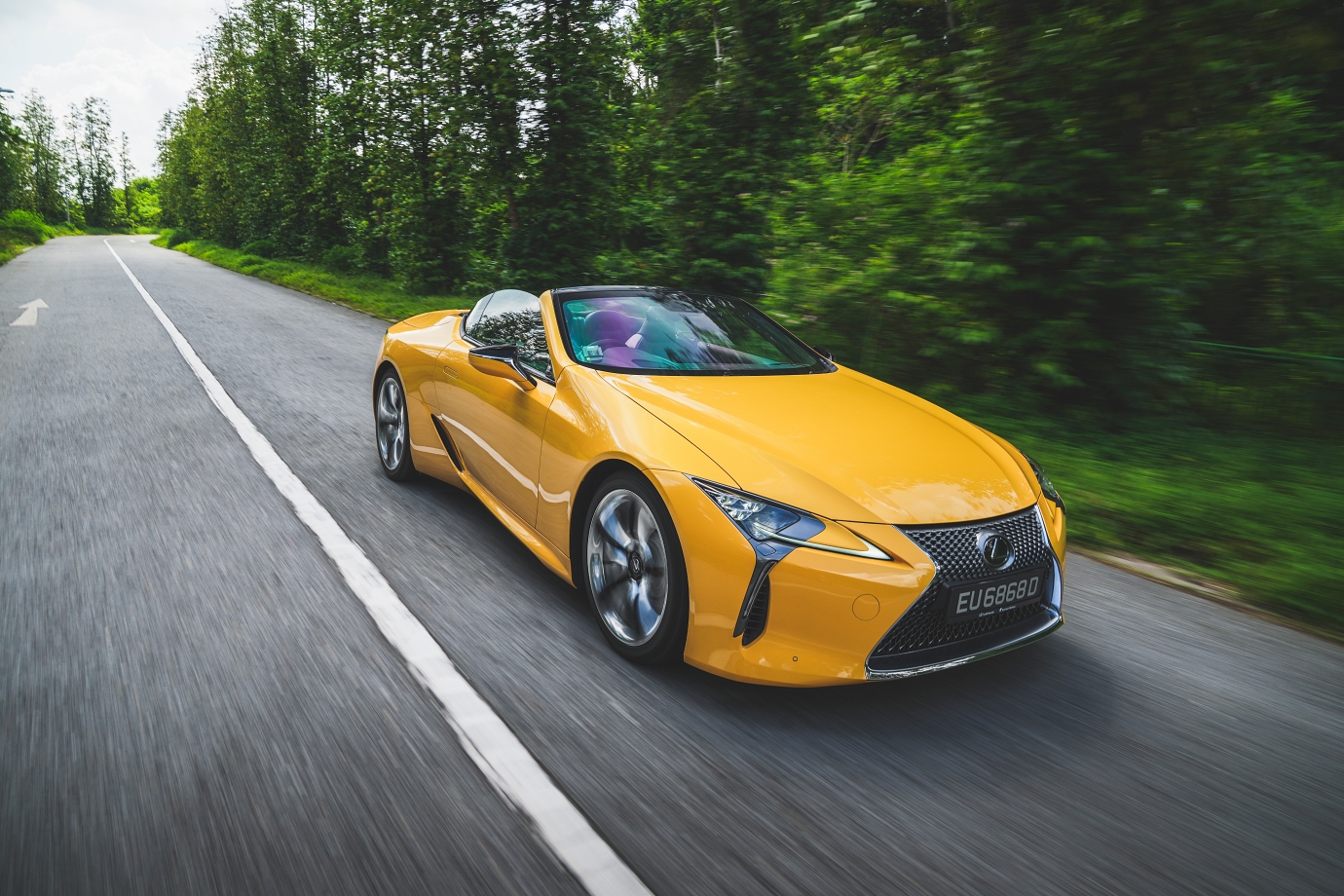
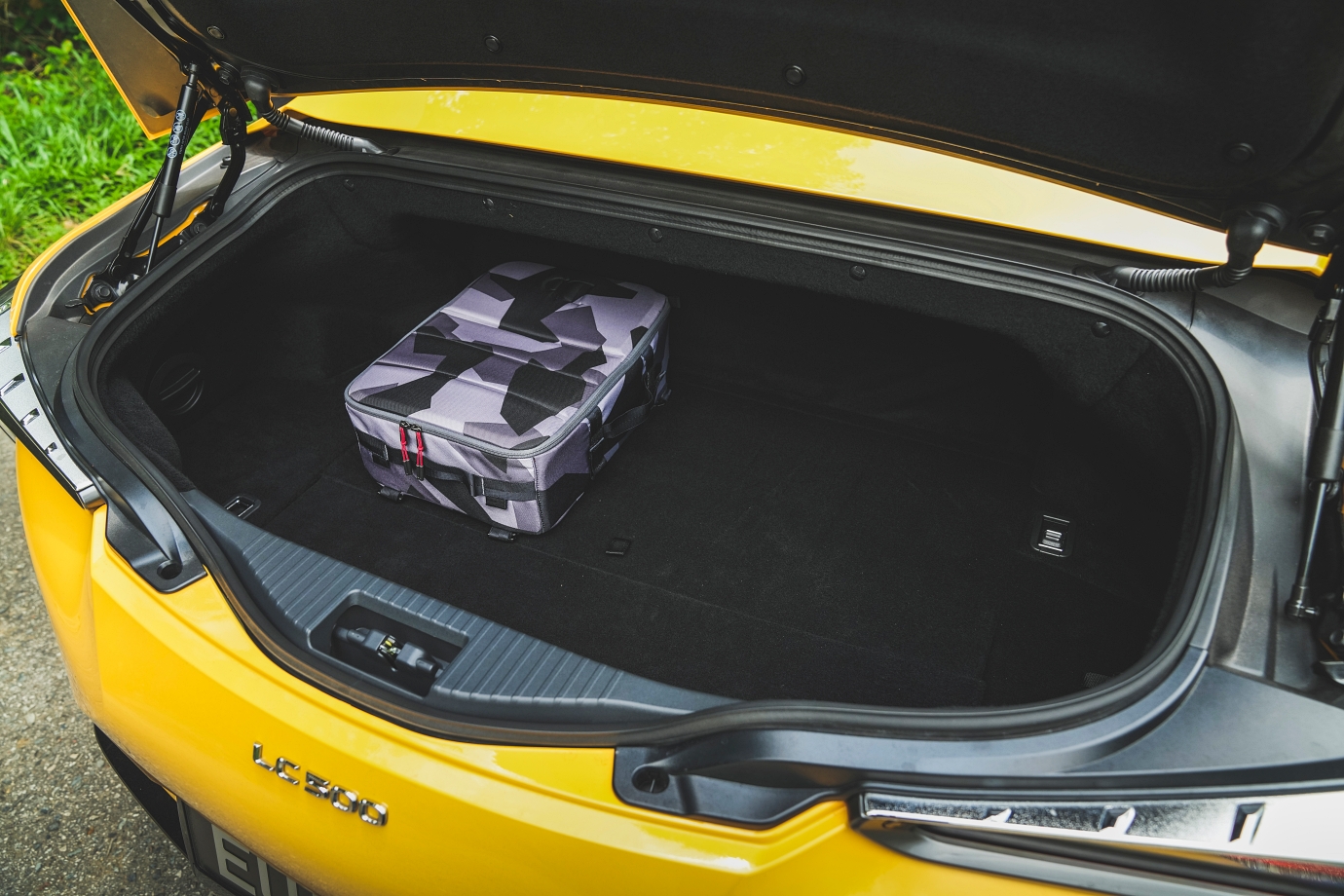
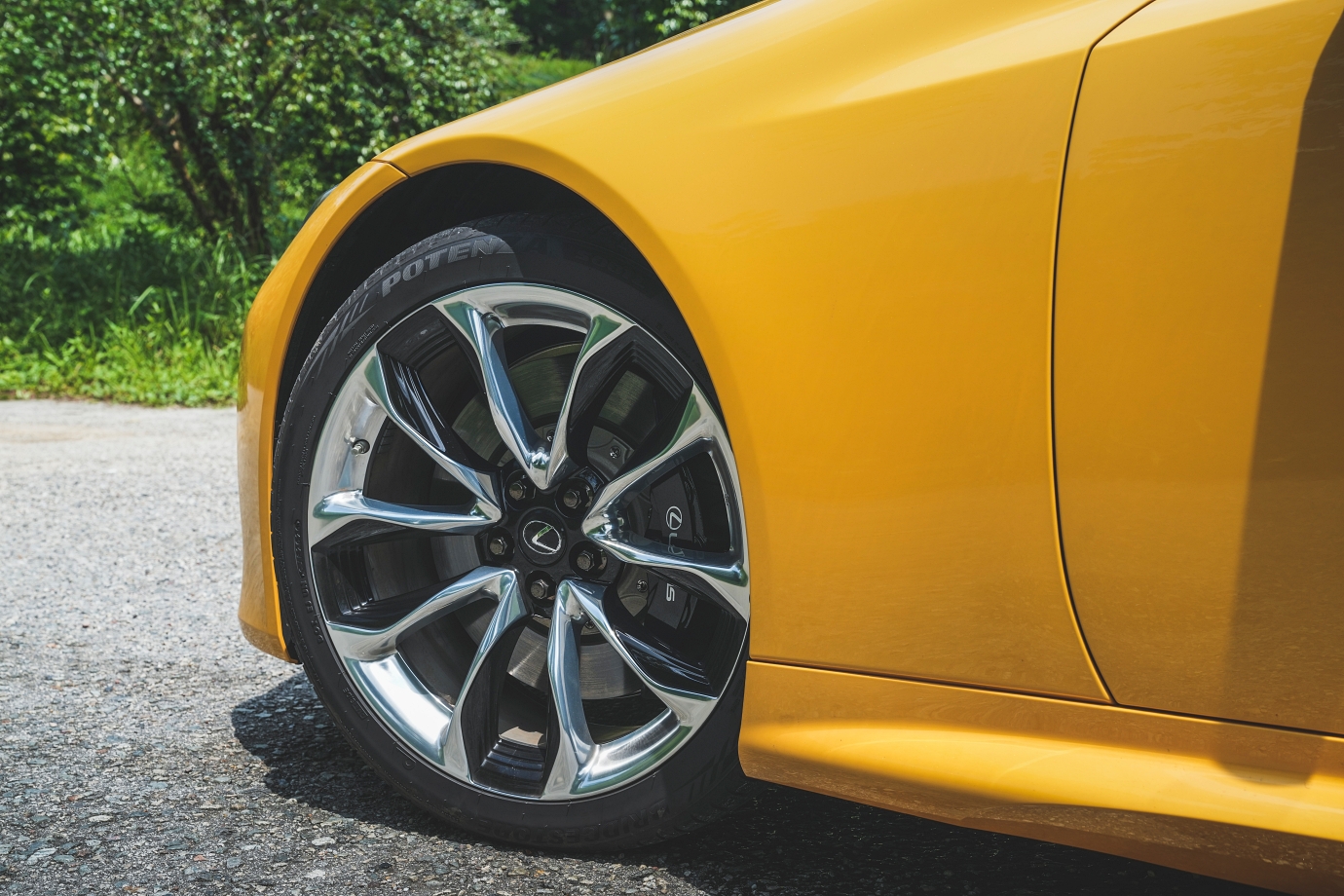
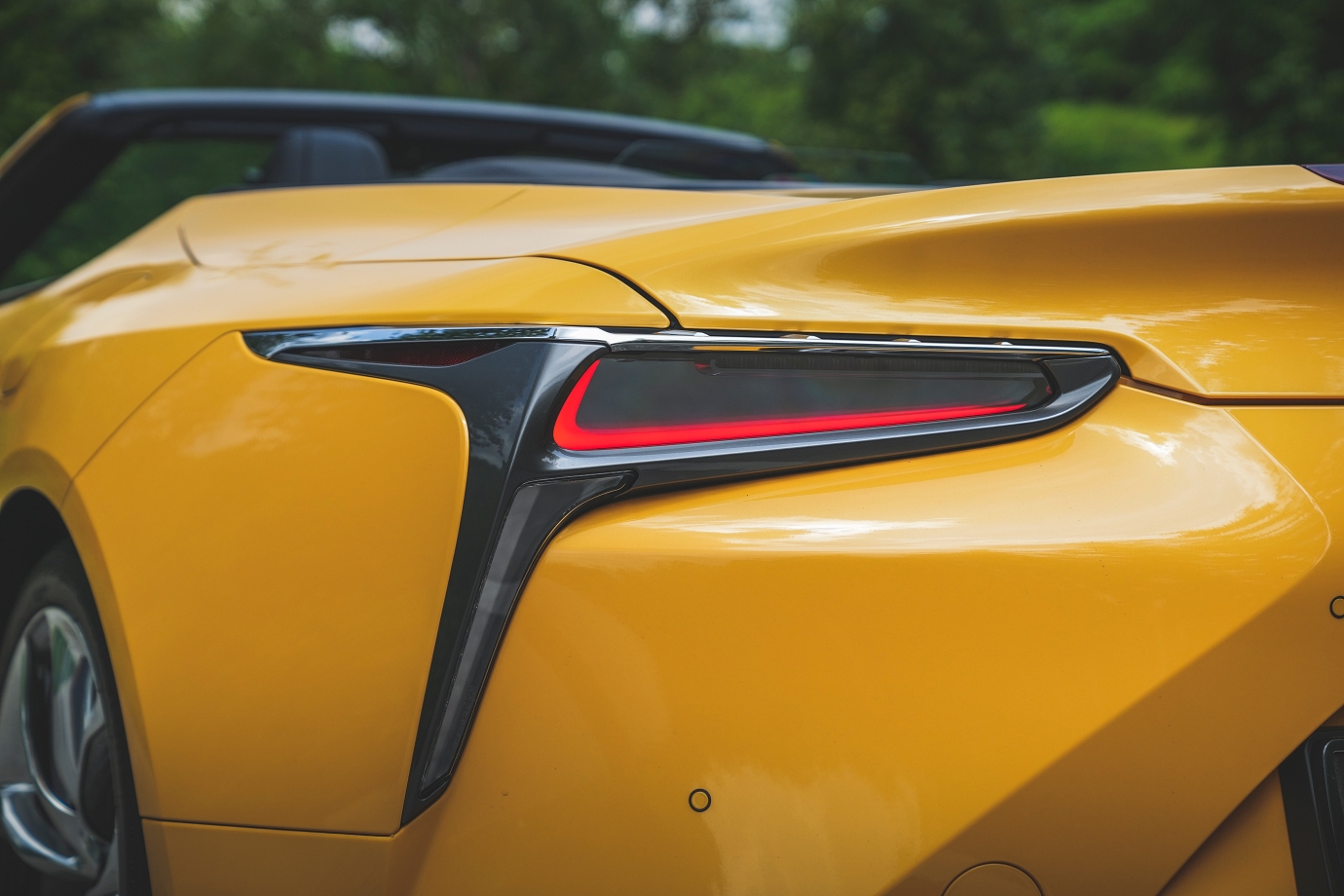
Compared to the Coupe, the added weight of the Convertible blunt the effects of the explosive 5.0-litre V8, but it'll still go ballistic with plenty of aural and visual cues when you rev it beyond 7k.
It's never obnoxious though, like you get with many of today's performance cars, just a mellow bellow before the killer induction hook kicks in as the V8 rages to redline.
The slick-shifting 10spd auto is no slouch either, and provides a satisfying 'hit' with each up/downshift.
You can't spec the LC Convertible with rear-wheel steer, but there's cost-optional LSD for owners in search of a more incisive driving experience.
This misses the point of the LC Convertible completely, though. The pliant ride and supple comfort may point to grand tourer credentials, but it offers keen enough handling to be sufficiently engaging.
However, it isn't too visceral as to be uncomfortable when the occupants want to enjoy wind-in-hair and howling-V8-in-ears, and with the LC 500 Convertible, we reckon this is something you'll want to indulge in most of the time...
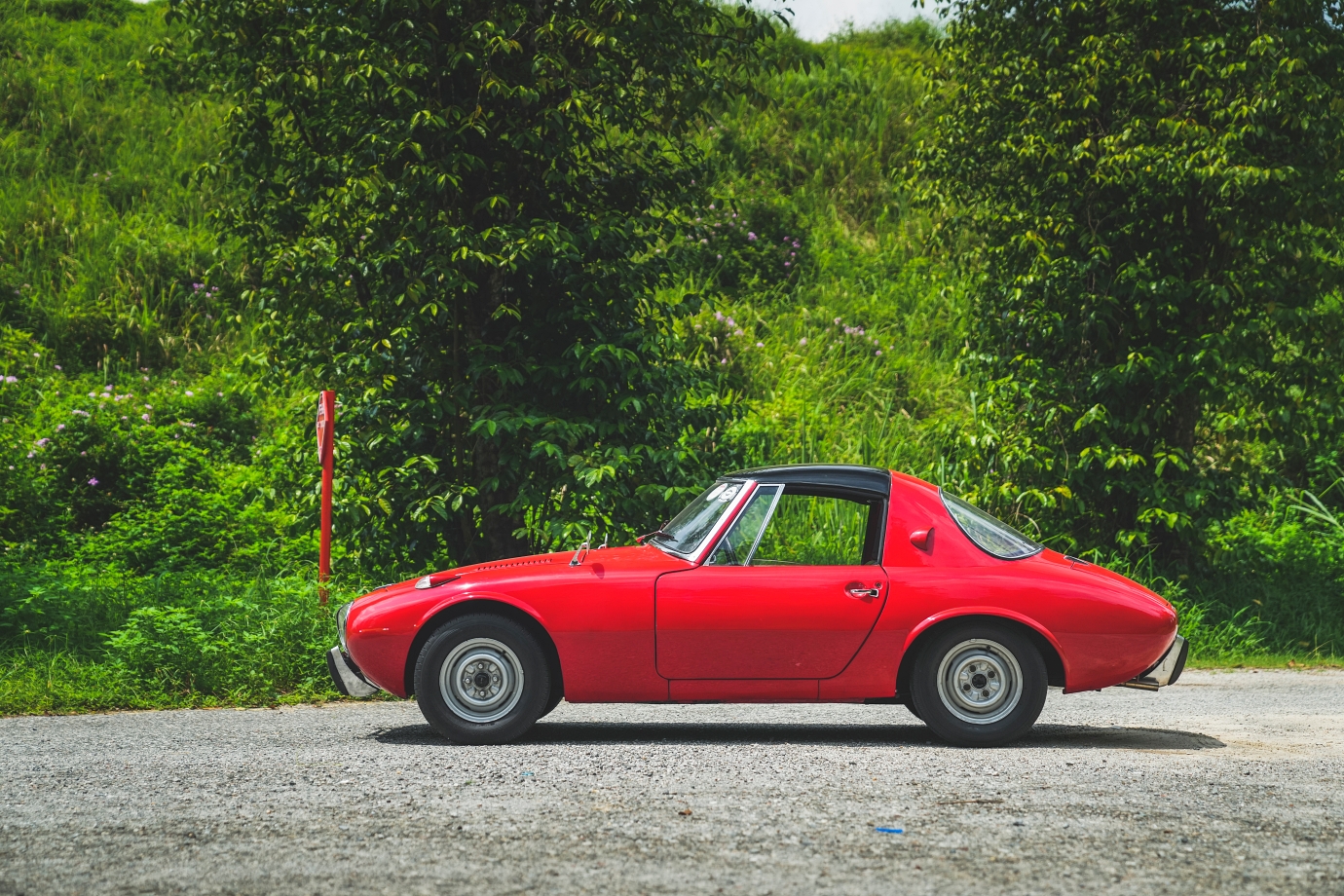
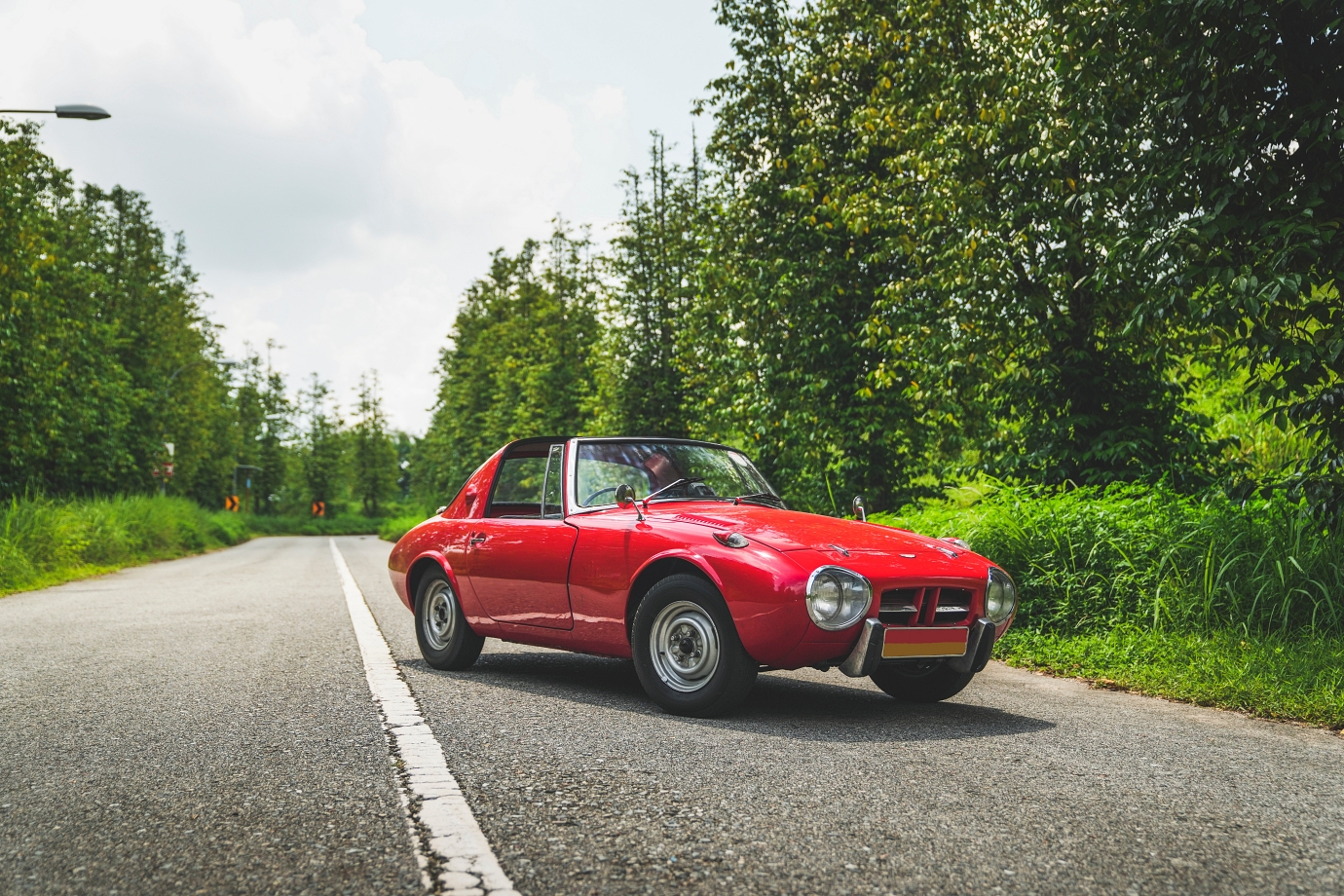
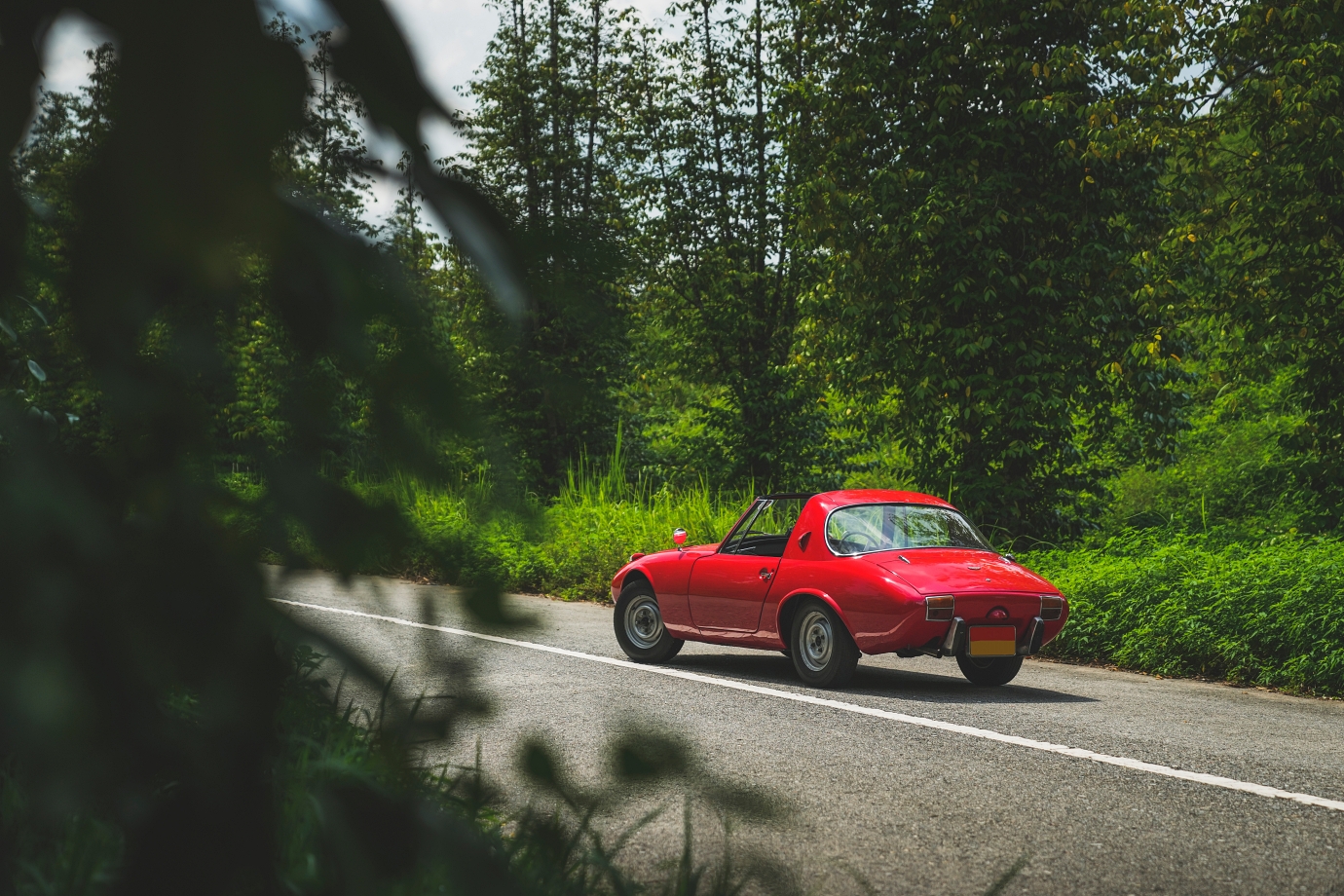
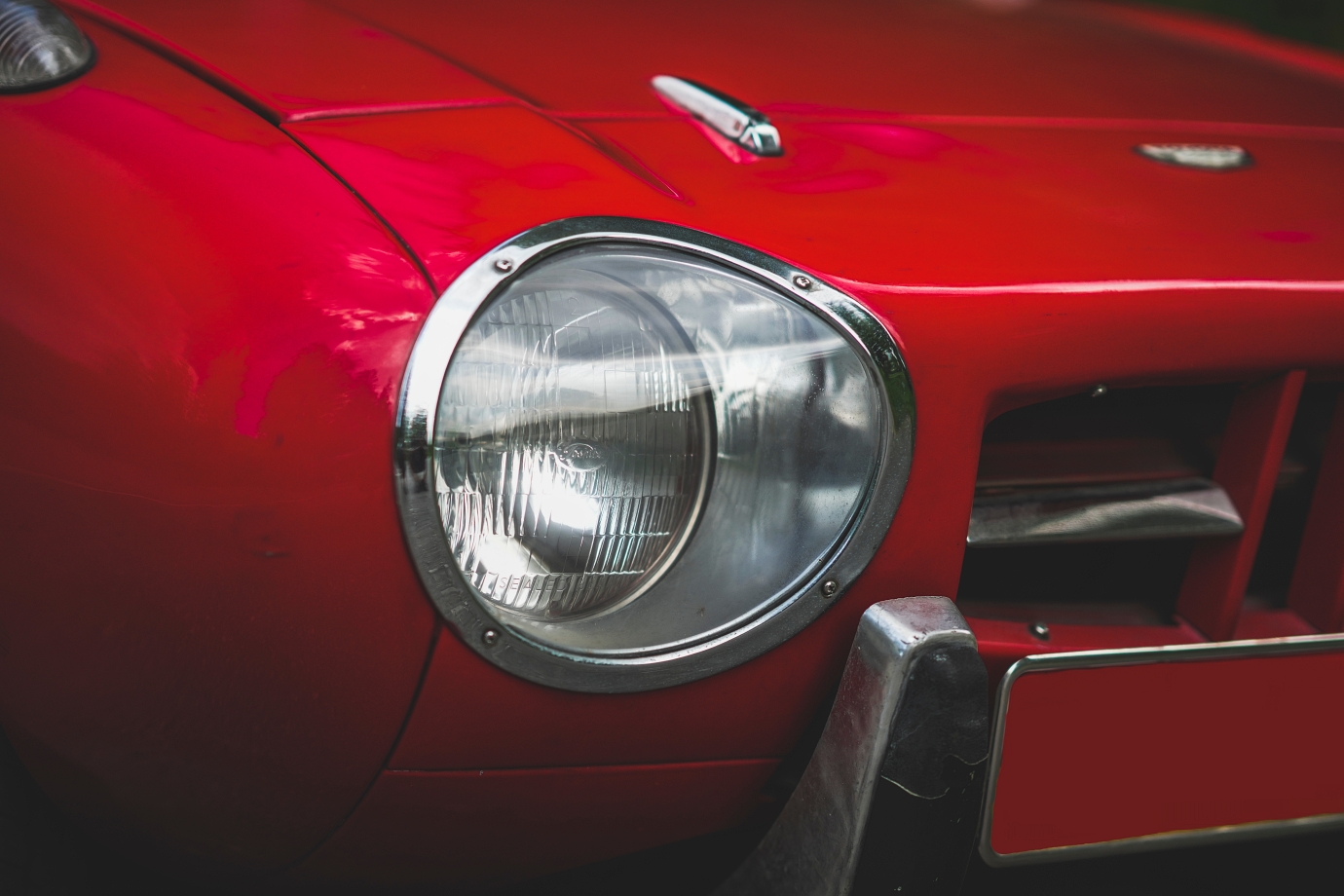
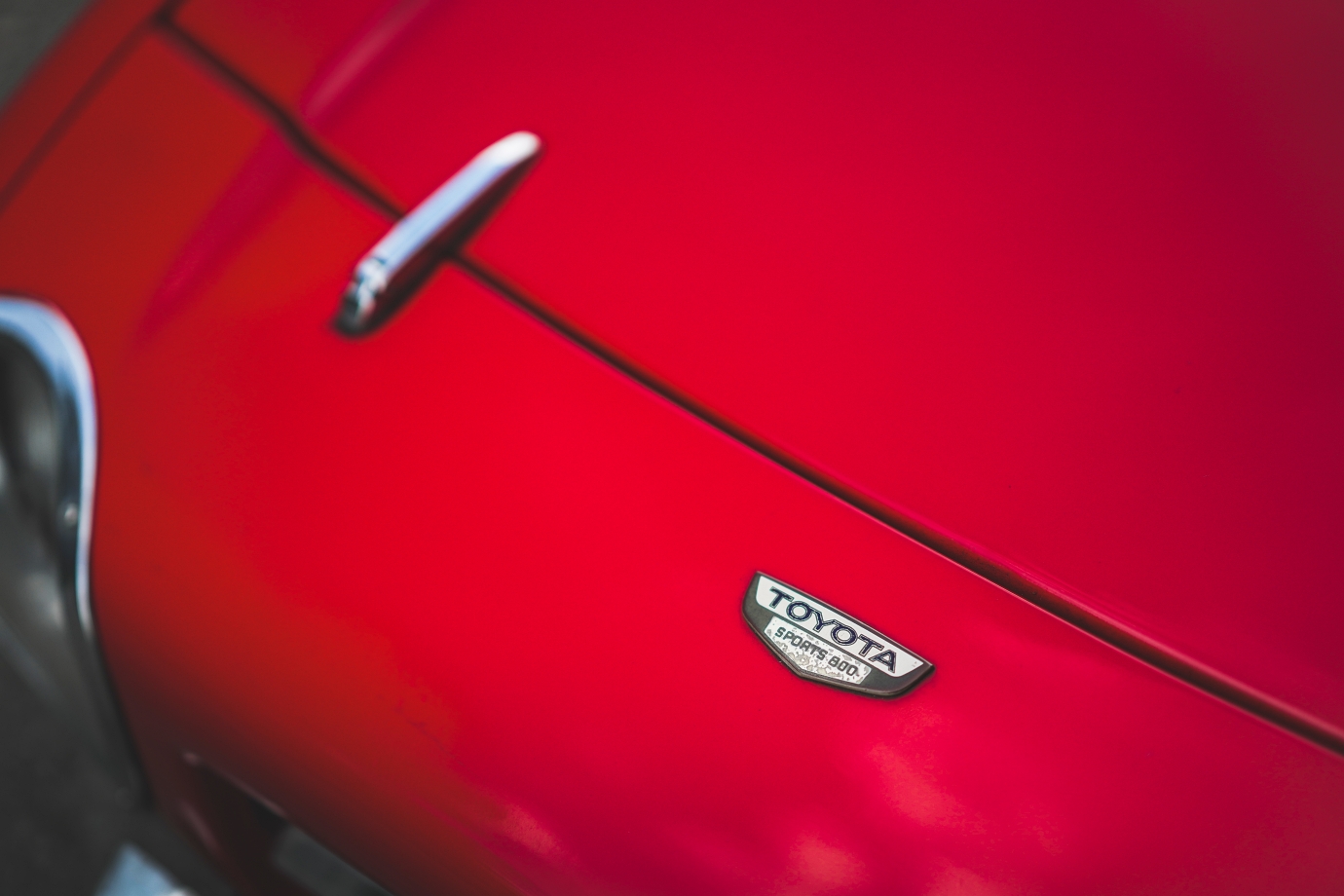
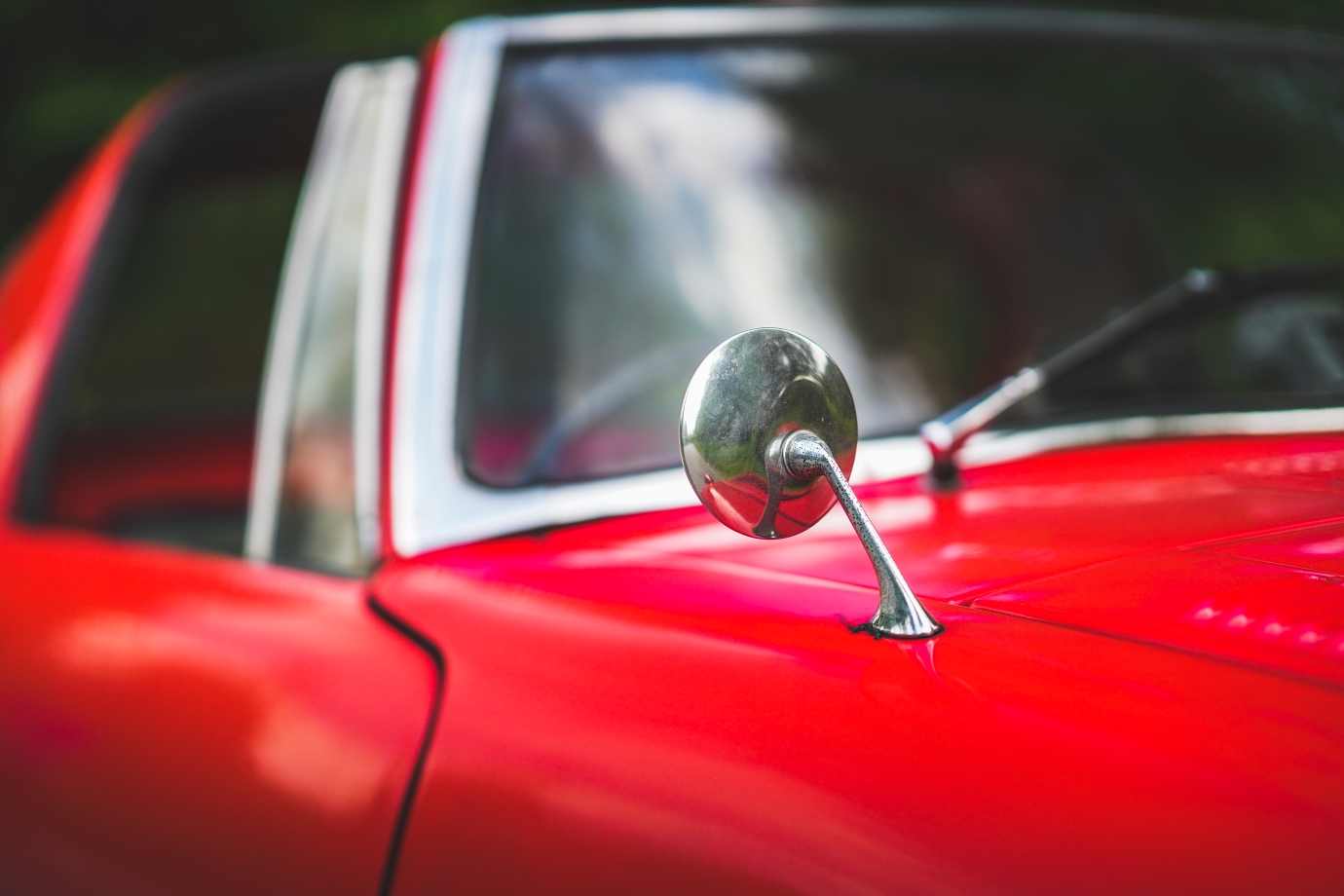

TOYOTA SPORTS 800 (UP15)
...And that's exactly how we felt with the teeny-weeny-itsy-bitsy Sports 800, which is why we kept the flat-top roof stowed in the boot when the sun was out – it'll also take about 15secs to remove... with your bare hands, that is!
Size clearly matters not, and it's a veritable beast of a car with a larger-than-life spirit, even if its physical dimensions are bite-sized.
You sit properly sportscar low in the car, with the magical mechanical cacophony of the two-stroke flat2 nat-asp engine shattering the silence and enveloping the cockpit in a force-field of palpable sound the moment the dual-carbs stutter to rowdy, ruddy life.
With the engine clattering, chattering and chuffing away with wild, wanton abandon, this is the sort of car you're happy to keep constantly on-the-boil, if only to luxuriate in the mad mechanical music of the mini motor.
The sound is so addictive we were compulsively blipping and heel-toe downshifting to make the most of our time with the car.
The engine performance figures sound modest, but the Sport 800's combination of low centre of gravity, slippery, aerodynamic shape and lightening measures means there's a pert perk to the pint-sized personality, which endows it with the sort of livewire character brought about by many hits of double espressos.
A lot of this was thanks to Chief Engineer Tatsuo Hasegawa's efforts, who applied his aerospace know-how and employed aluminium and thin-gauge steel to keep kerbweight to under 600kg, which resulted in the creation of the Sport 800's flyweight and agile handling package.
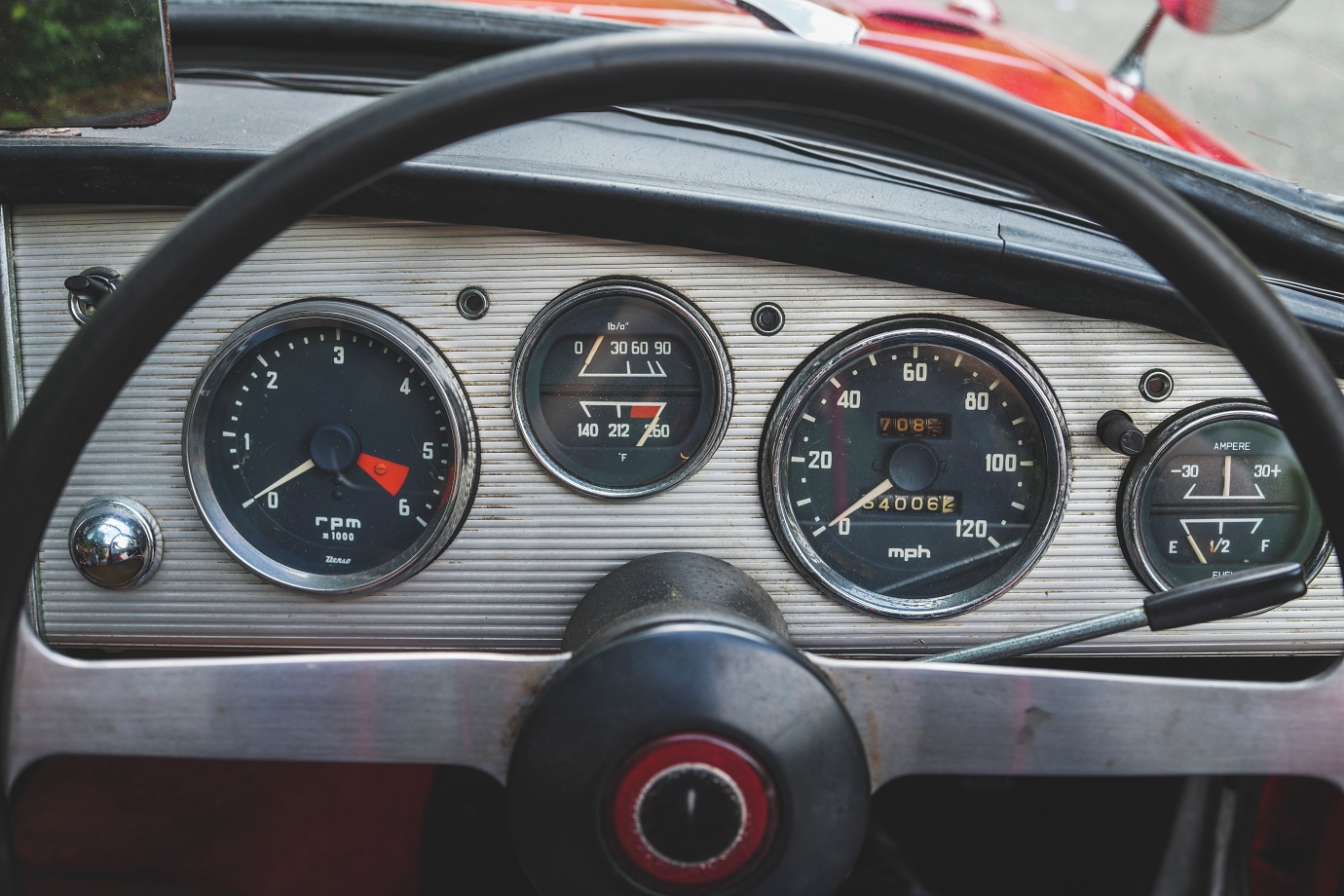
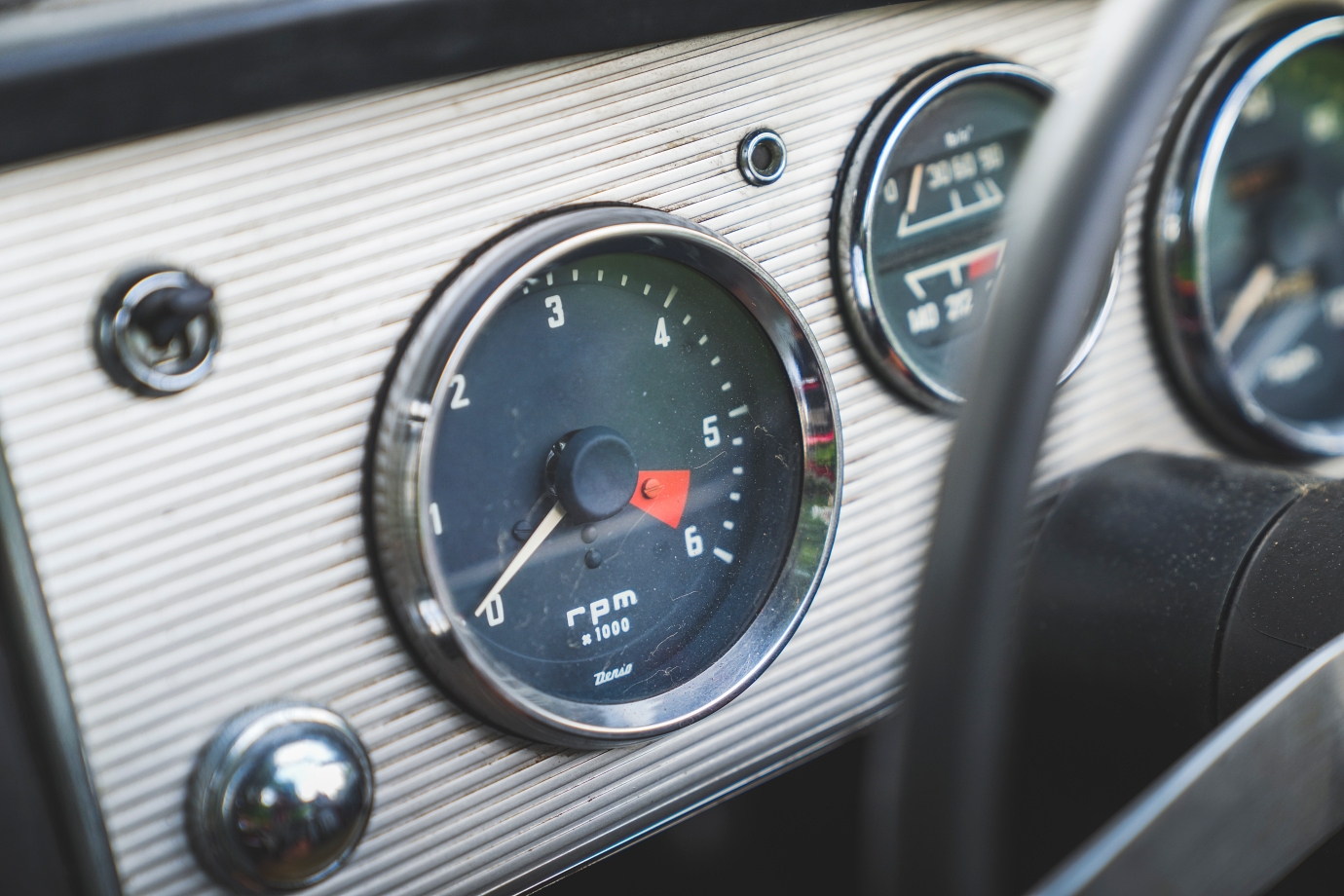
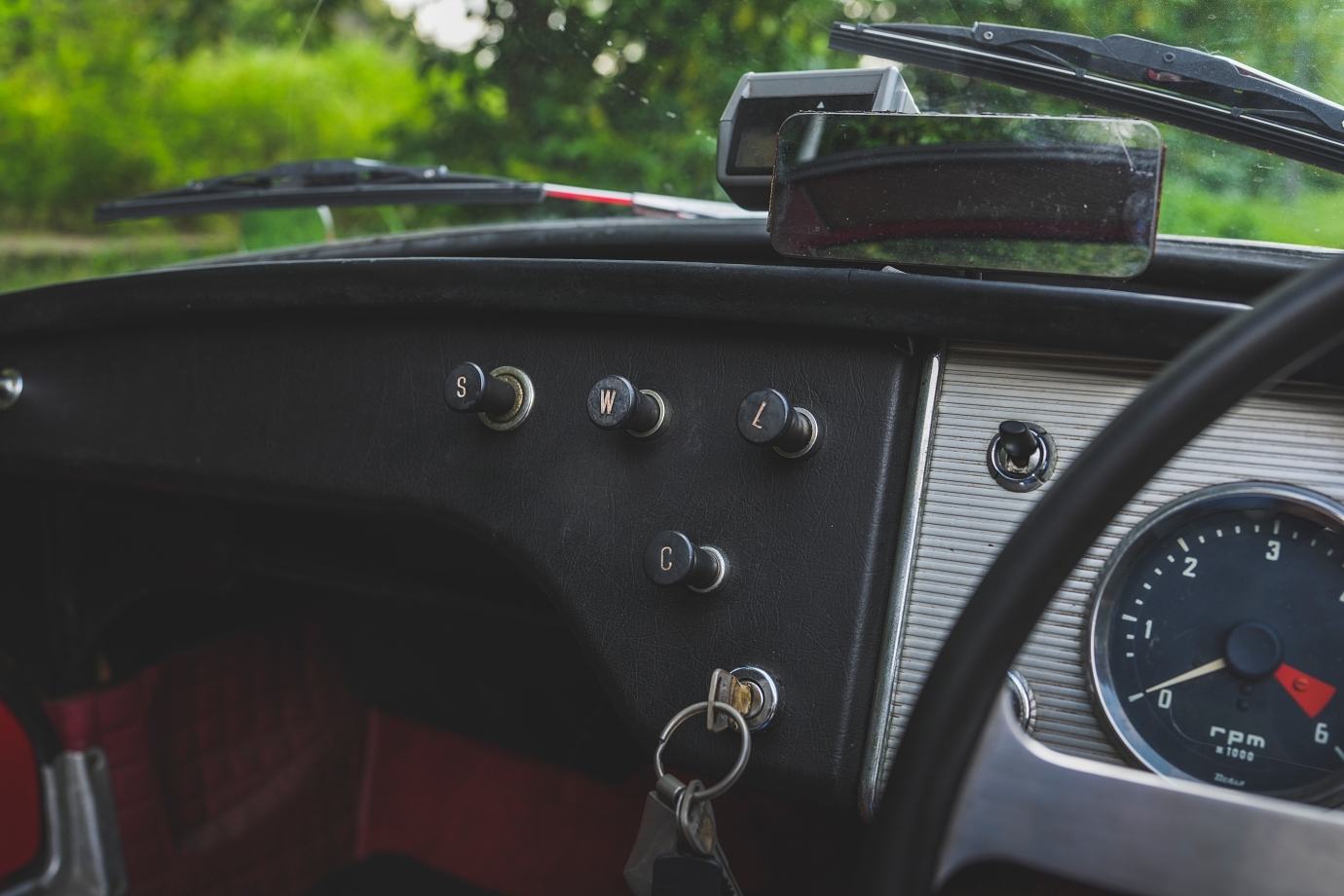
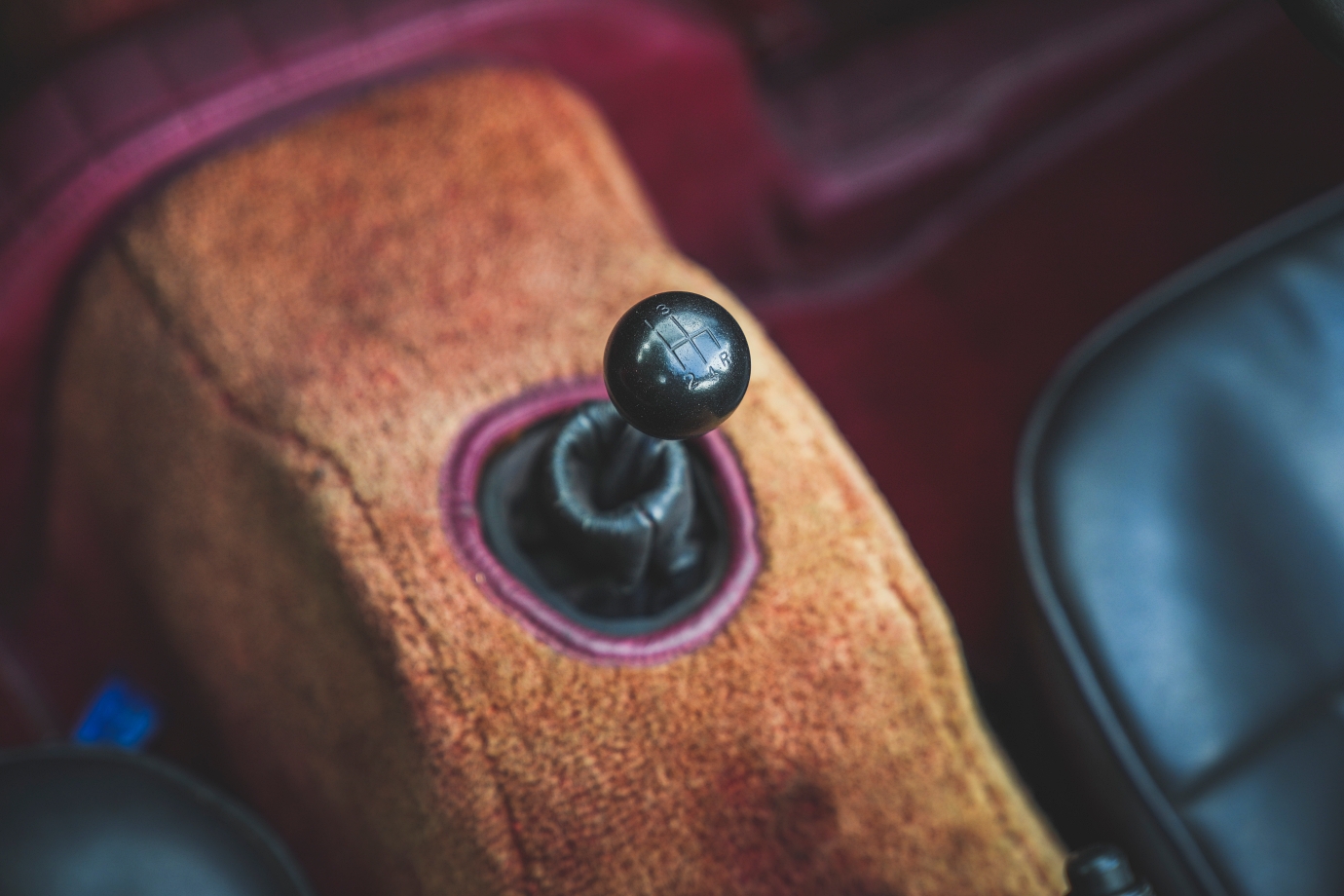
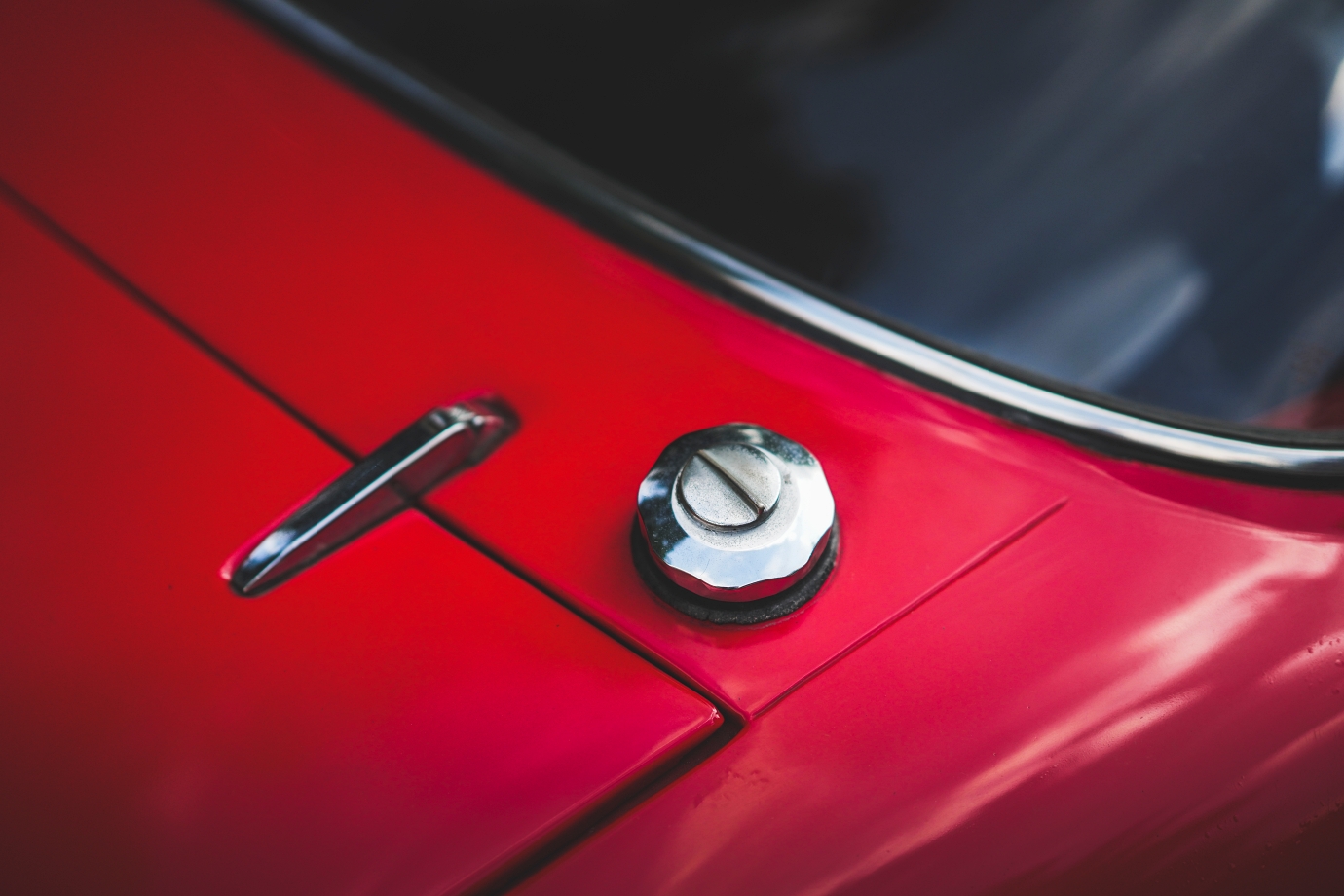
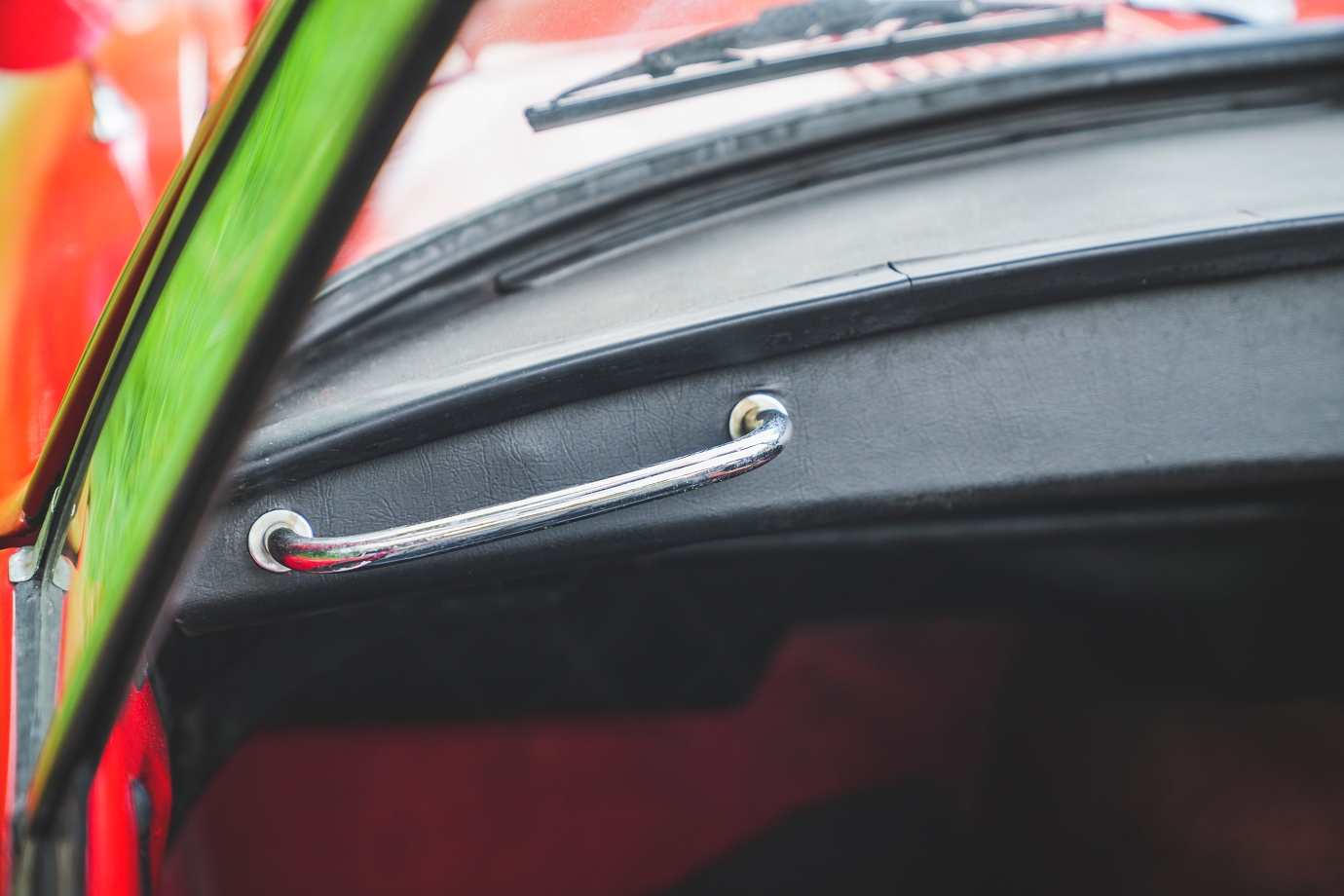
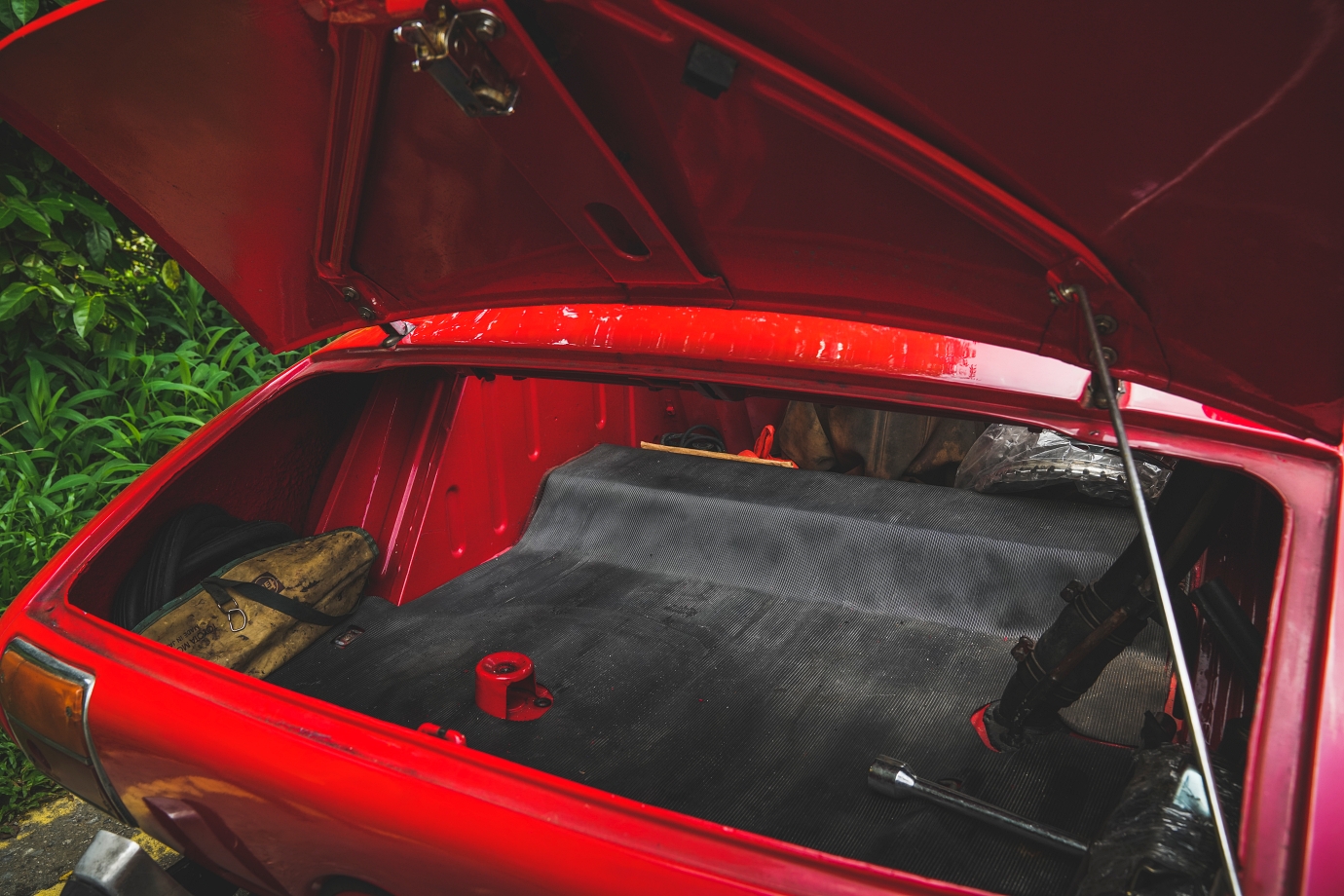
Where the Sports 800 excels though, is not in the straight-line, but when the going gets curvy, because the steering is so sharp it'll cut deep into the corners.
Also, the short wheelbase chassis is alert, agile and playful, with a back-end that will eagerly be nipping at the heels of the front in an attempt to overtake it under the slightest provocation.
Depending on how hastily you're hustling it on the winding roads, you'd best be alert to the wilful shenanigans of the Yota-Hachi's lively chassis and ready yourself with an armful of steering correction when enthusiasm surpasses grip, because you'd be surprised at how much momentum you can carry into the corners.
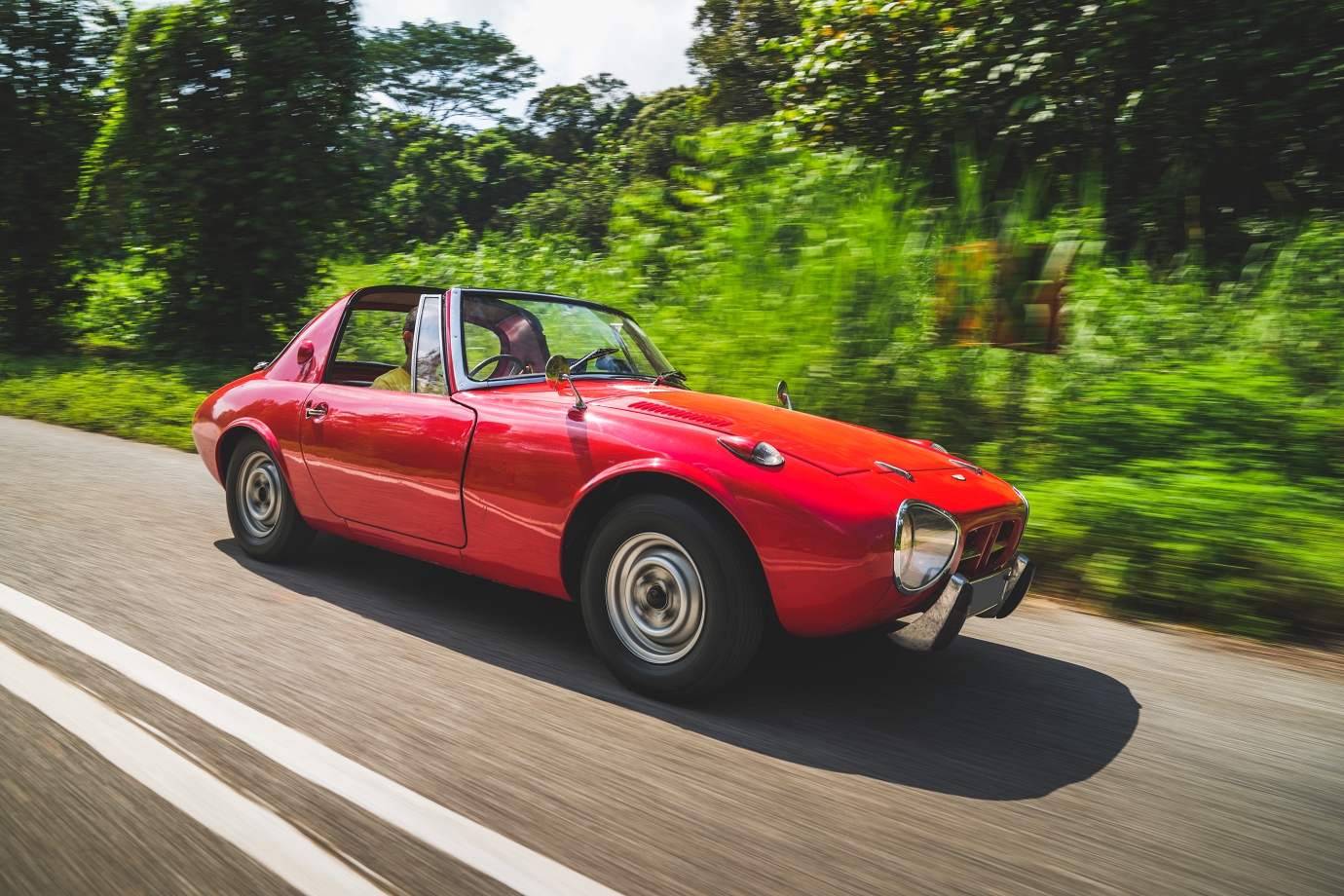
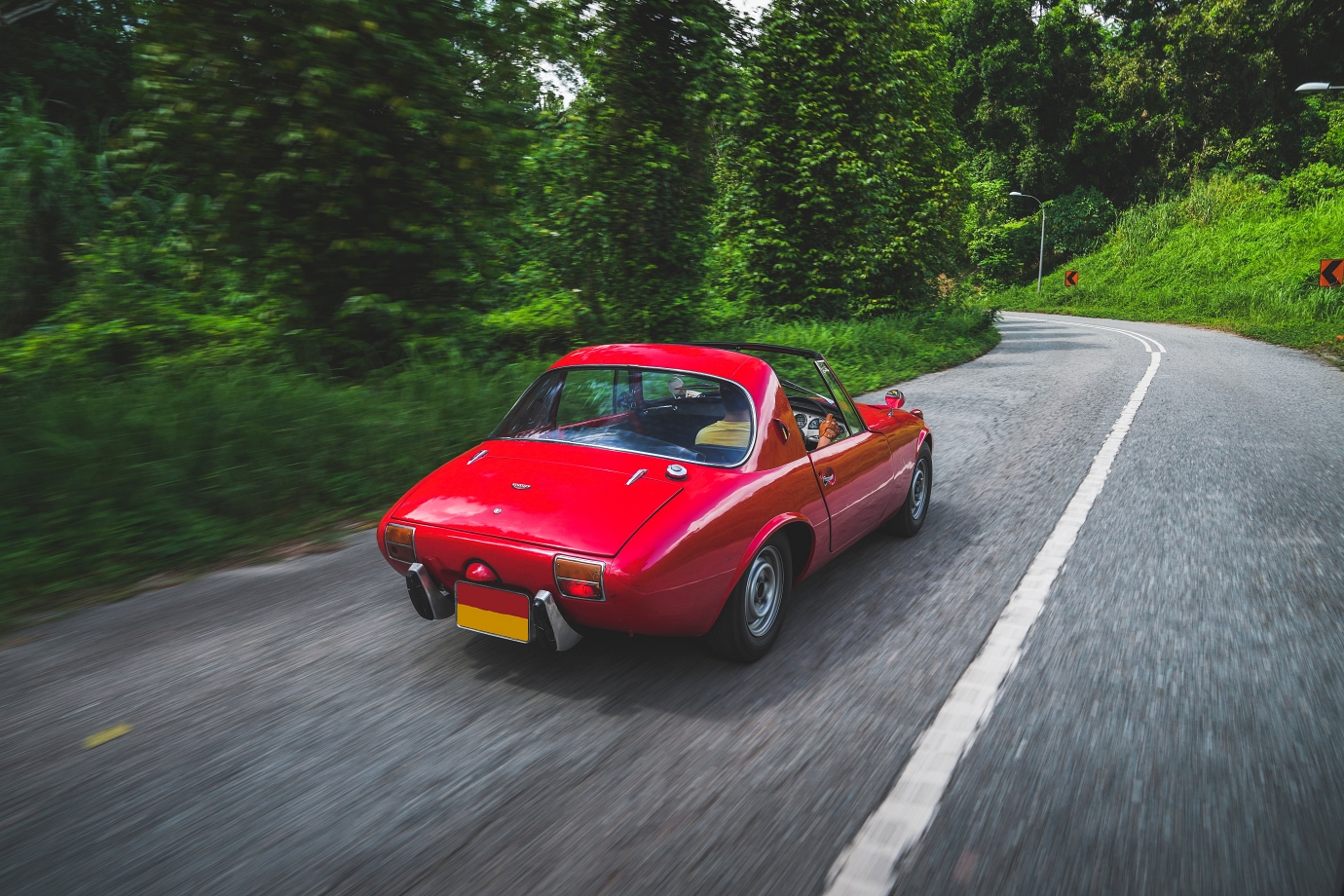
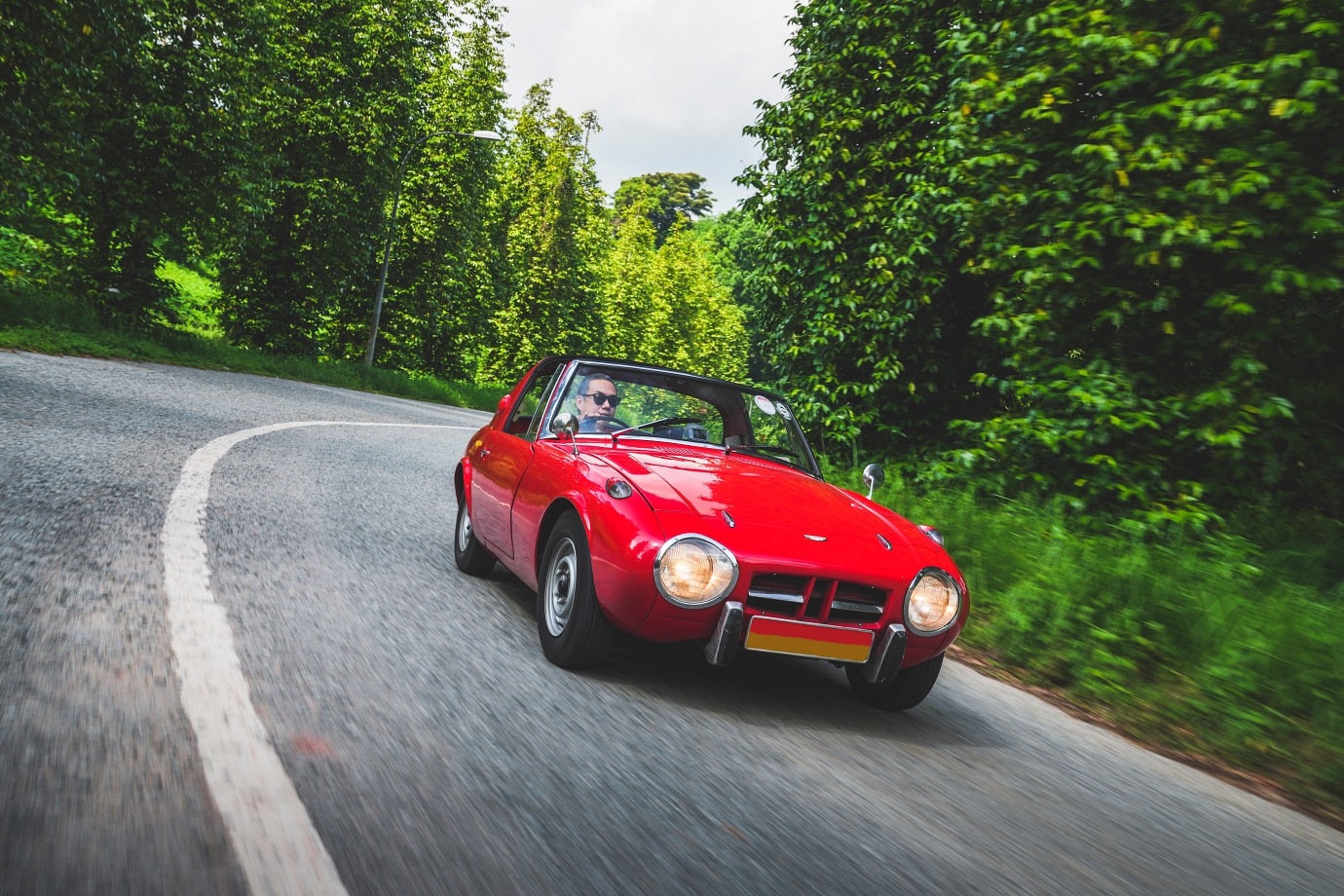
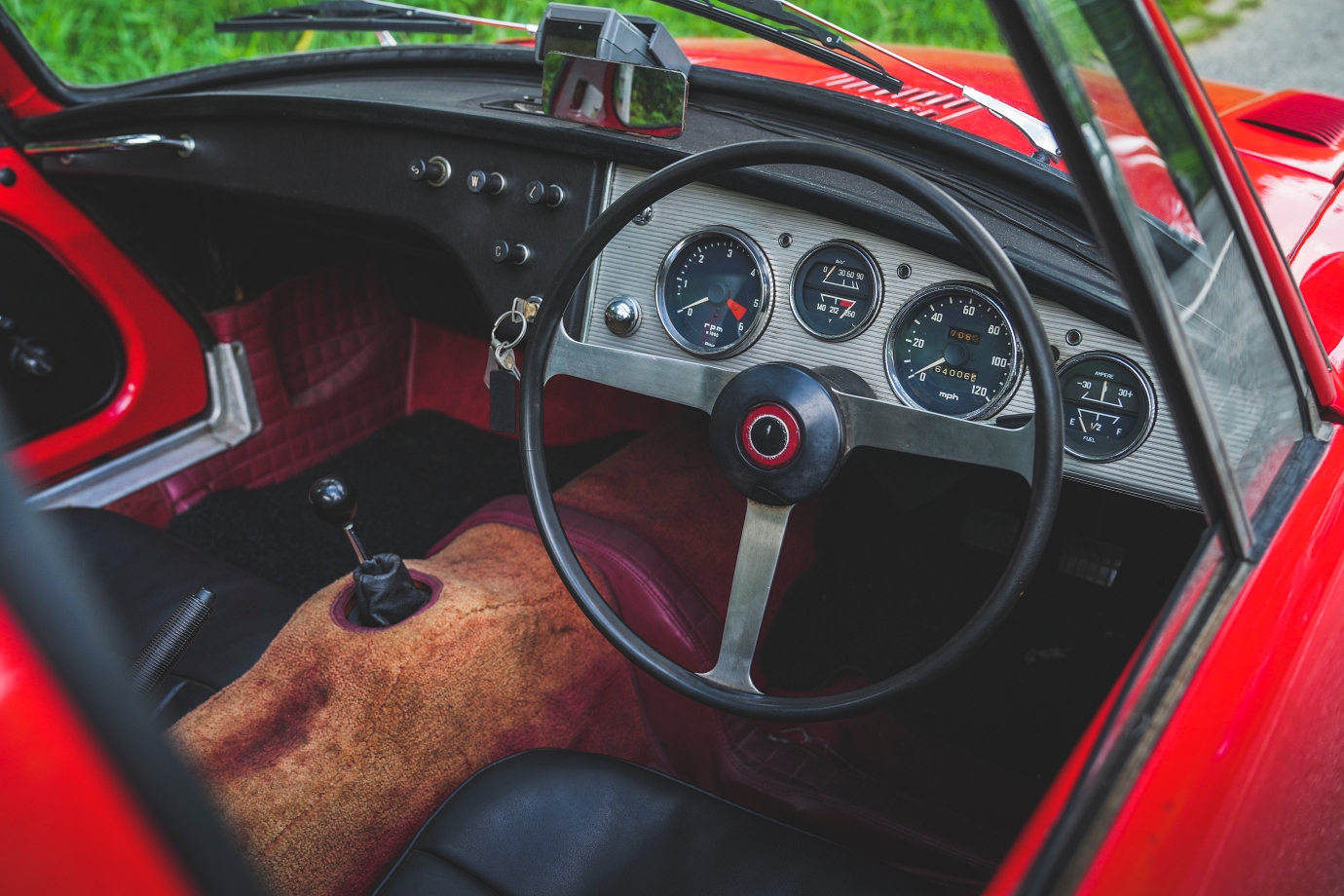
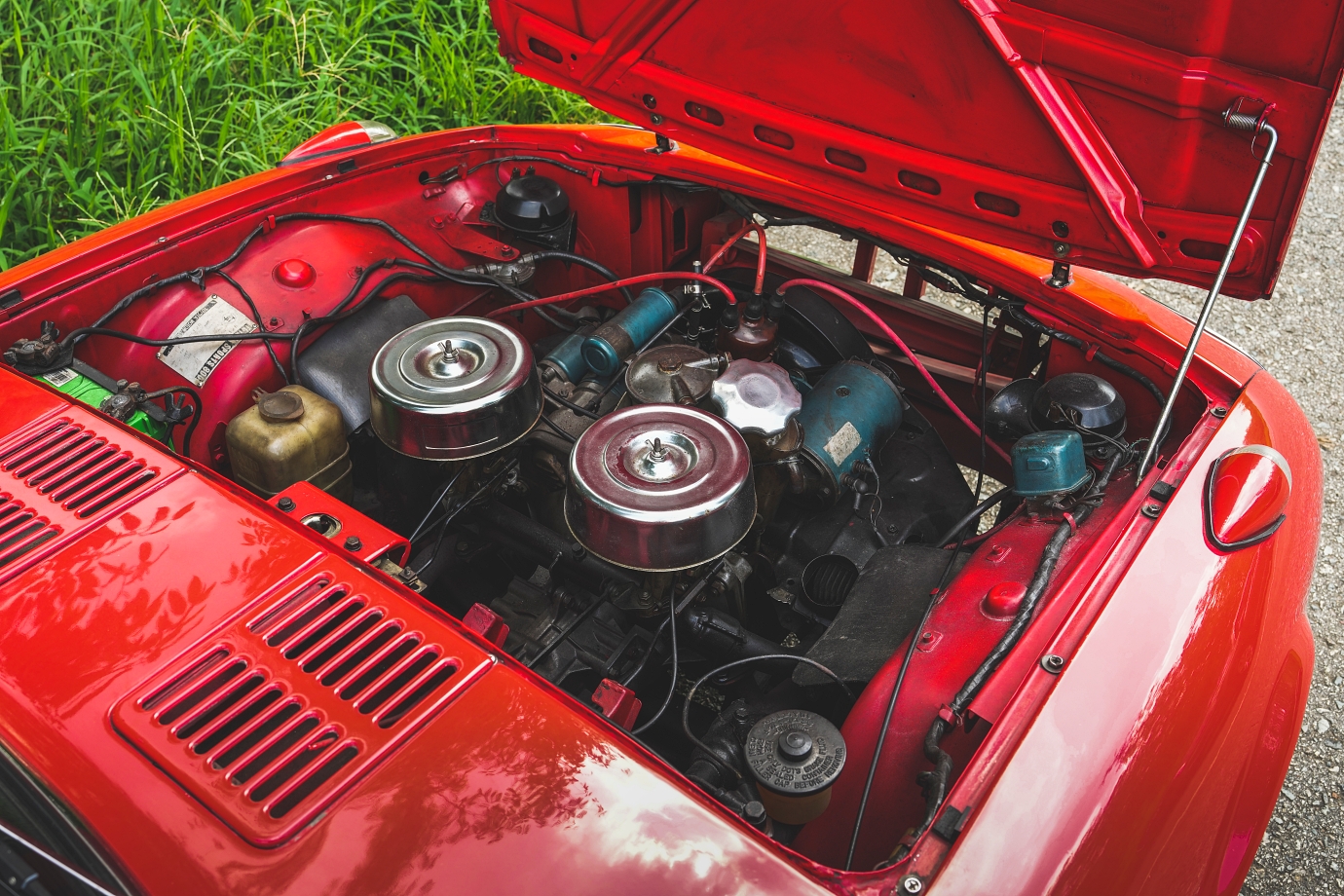
The 790cc engine may not rev as high as its Honda contemporaries, but it's a peppy little unit with plenty of zing that will see the needle arc effortlessly towards 5000rpm.
Like the minimalist cabin, the Sport 800's driving sensations are pure and unadulterated.
There's a constant stream of communication between tyres to steering wheel and seat-of-pants, so you're always in-sync with the little sportscar to react instinctively and intuitively.
Pretty staggering stuff when you consider the tiny Japan Automotive Hall of Fame 'Historical Car' inductee celebrated five-and-a-half decades just a year ago.
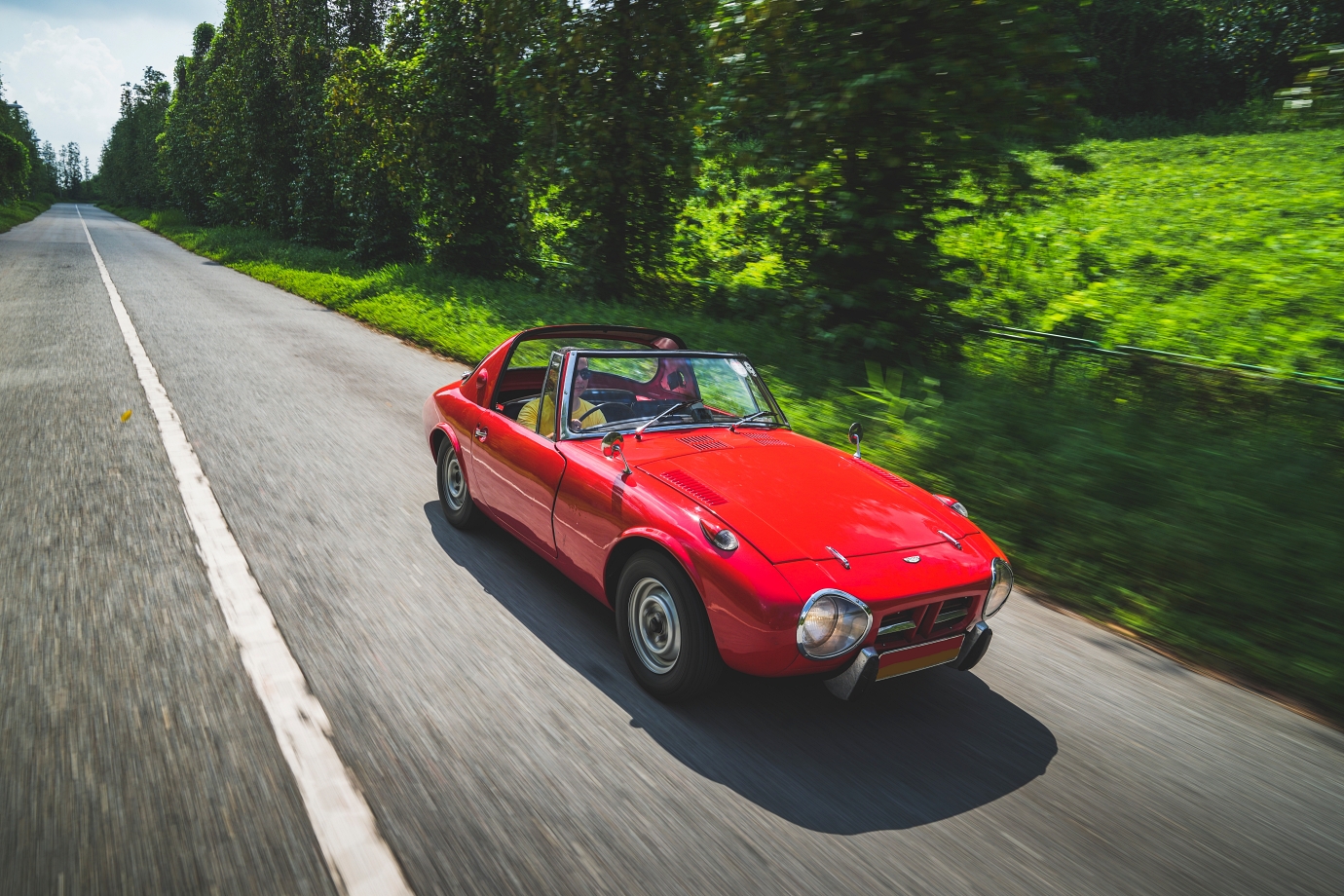

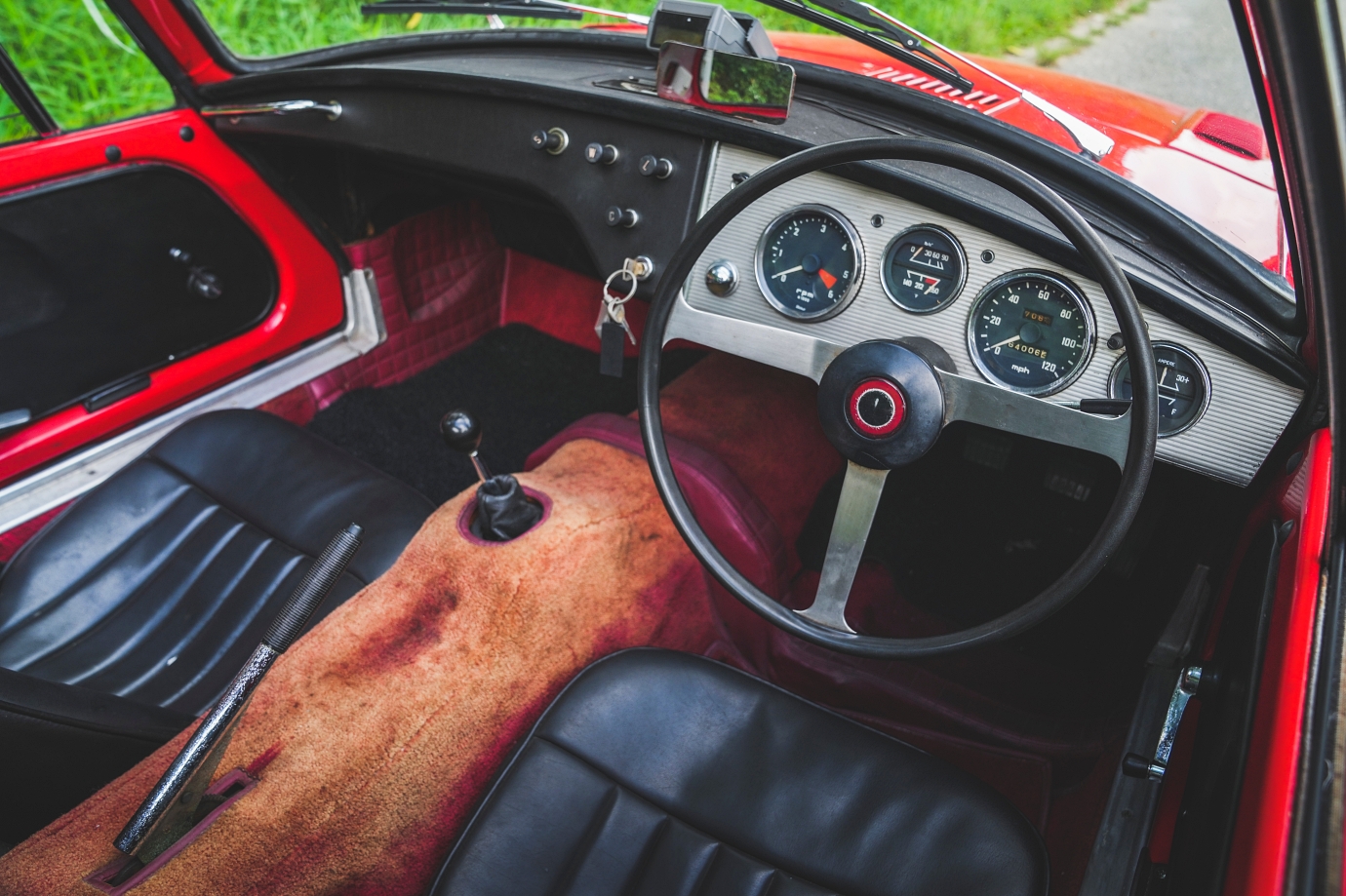
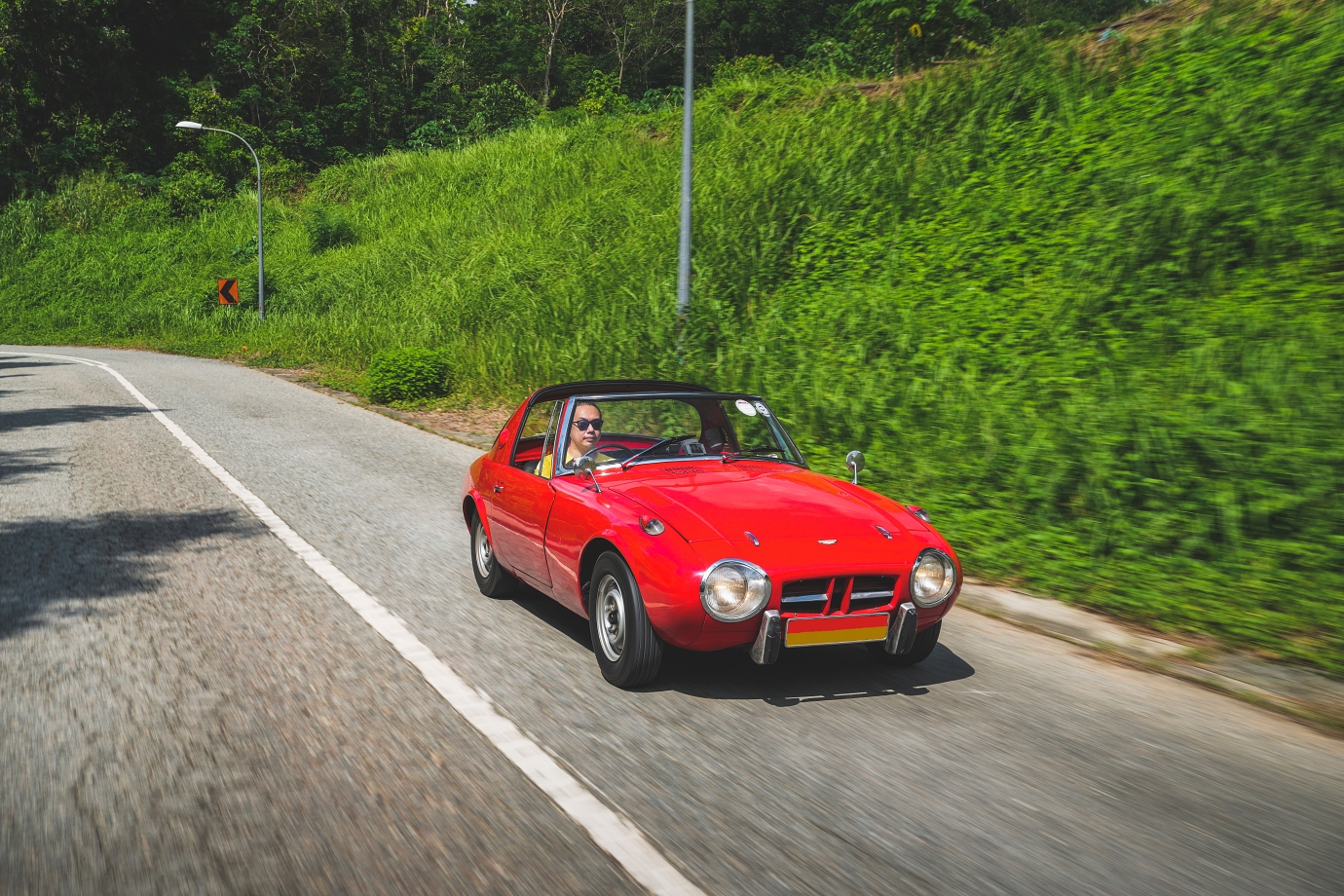
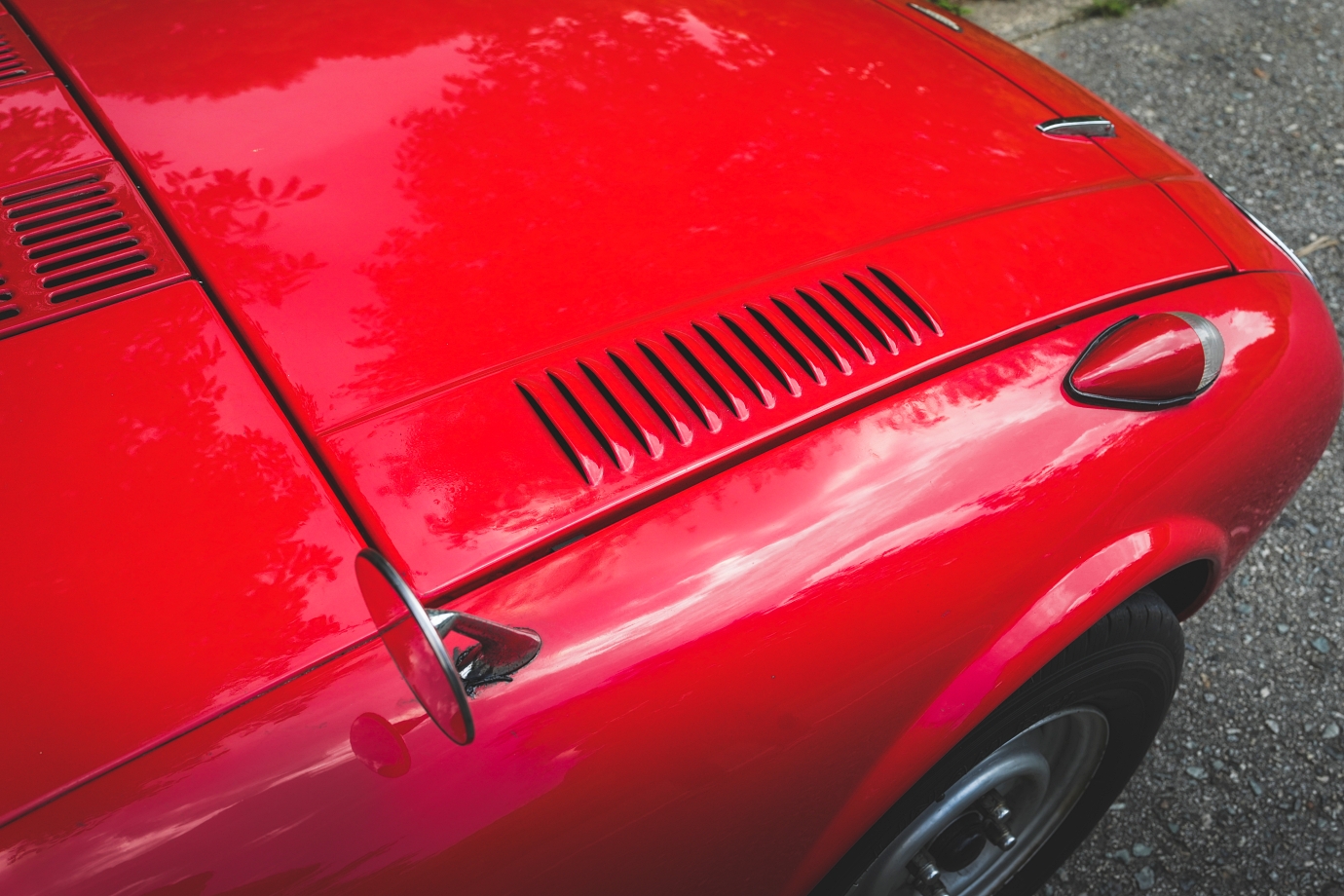
It shouldn't come as any surprise though, because sportscars like the LC 500 Convertible and the Sports 800 aren't engineered to numb their responses to cocoon their drivers from the grit of real world fast-road driving, because this only serves to dumb down drivers, as well as inadvertently creates a new lowest common denominator to pander to.
In many ways, today's LC models – and sporty F cars from not so long ago – channel a lot of the brand's essence of simplicity and sporty driving pleasure that we so enjoyed in the Yota-Hachi.
To sum it up, Toyota/Lexus performance cars from before (and to come) are proper "thinking person's" sportscars that appeal to the discerning driver who isn't necessarily chasing paper figures, but are instead on a quest to rekindle their love for the winding road.
PHOTOS Zotiq Visuals
Toyota Sports 800 (UP15)
Engine 790cc, flat2, air-cooled
Power/rpm 45hp/5400rpm
Torque/rpm 66Nm/3800rpm
Transmission 4spd manual
0-100km/h n/a
Top Speed est. 155km/h
Fuel Consumption est. 3.2l/100km
Kerbweight 580kg
Lexus LC 500 Convertible
Engine 4969cc, V8, nat-asp
Power/rpm 477hp/7100rpm
Torque/rpm 540Nm/4800rpm
Transmission 10spd Sport Direct Shift auto
0-100km/h 4.6secs
Top Speed 270km/h
Fuel Consumption 13l/100km
Kerbweight 2040kg
